The best strategy games on PC | PC Gamer - hemphillboying
The best strategy games on PC
Strategy is the representative PC genre, keeping us buried in maps, army lists and build orders since the early days of PC gaming. And it's one of the most diverse, catering to everyone from loyal grognards to people WHO scarce want to see Indira Gandhi nuke Montezuma.
In this list, you'll find everything from fast-paced, competitive RTS games to long burn 4X romps. If you privation history, we've got information technology. Sci-fi? Yep, a few of them. Fantasy, too. In the casing of serial with multiple entries, we've picked what we feel was the best game to frolic now. We might lineament more than unmatched accounting entry from the comparable series if we think they're different enough that you might gain from playing both.
Grand strategy
Crusader Kings 3
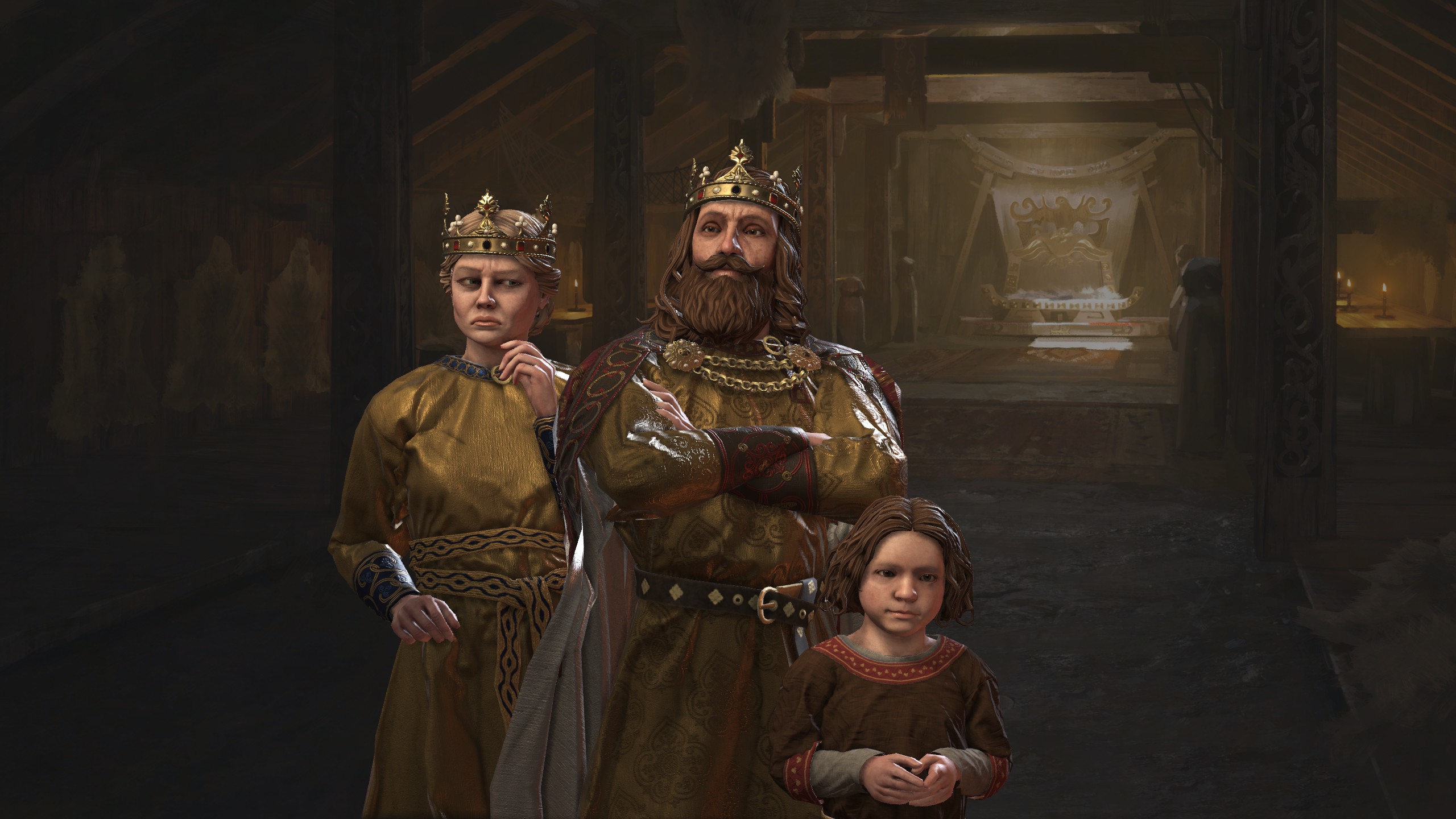
Crusader Kings 3, the best scheme game of 2020, has taken its predecessor's speckle on the list, unsurprisingly. It's a Brobdingnagian grand strategy RPG, more dressed and adhesive than the old CK2, and quite a little easier on the eyes, too. At first glance it might seem a bit overly familiar, but an even greater concentre on roleplaying and simulating the lifestyles of medieval nobles, along with a big dish of new and reconsidered features, makes it well worth jump ship to the latest looping.
It's only going to get big and more ambitious as the inevitable DLC piles up, but even in its vanilla form CK3 is a never-ending storyteller supported by countless interlinking systems that demand to be mucked around with and tweaked. Getting to grips with it is thankfully considerably easier this time around, thanks to a helpful nested tooltip organization and plenty of guidance. And all this soapy dynastic drama just has a brilliant flow to it, carrying you along with it. You hind end meander through life without any avid be after and quieten find yourself embroiled in innumerable intrigues, wars and trysts.
Tote up War: Three Kingdoms
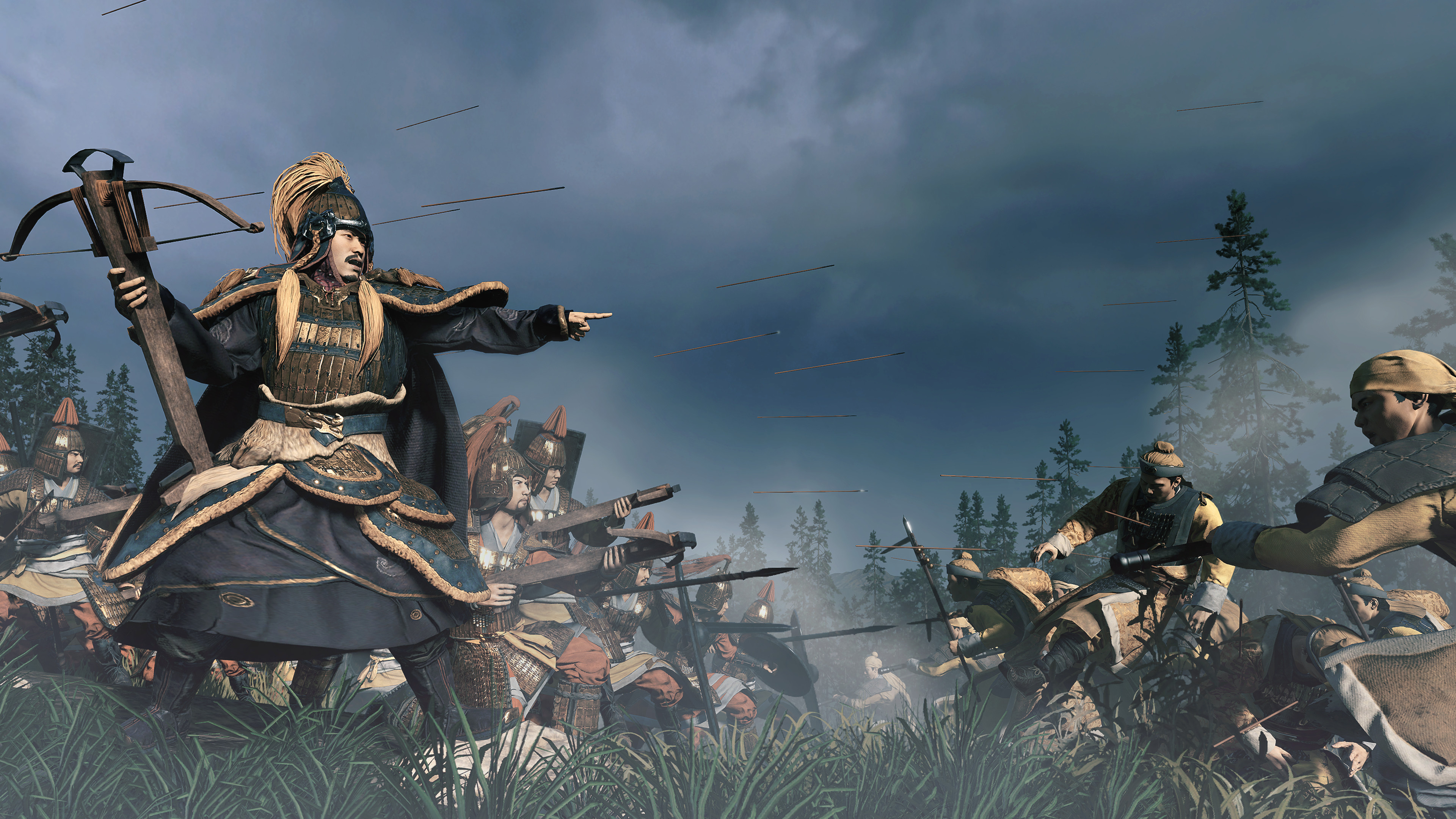
Total War: Troika Kingdoms, the latest historical entry in the series, takes a few nods from Warhammer, which you'll find elsewhere in this list, big us a sprawling Chinese civilised war that's fuelled by its distinct characters, both on and off the battlefield. Each is part of a complicated web of relationships that affects everything from diplomacy to public presentation in battle, and like their Warhammer counterparts they're all superhuman warriors.
It feels like-minded a leap for the series in the same way the first Rome did, bringing with it some fundemental changes to how delicacy, patronage and combat works. The fight over China also makes for a compelling campaign, Blessed with a kinda dynamism that we've non seen in a Totality State of war ahead. Since establish, it's besides benefited from some great DLC, including a new format that introduces historical bookmarks that expand happening different events from the era.
Total War: Warhammer 2
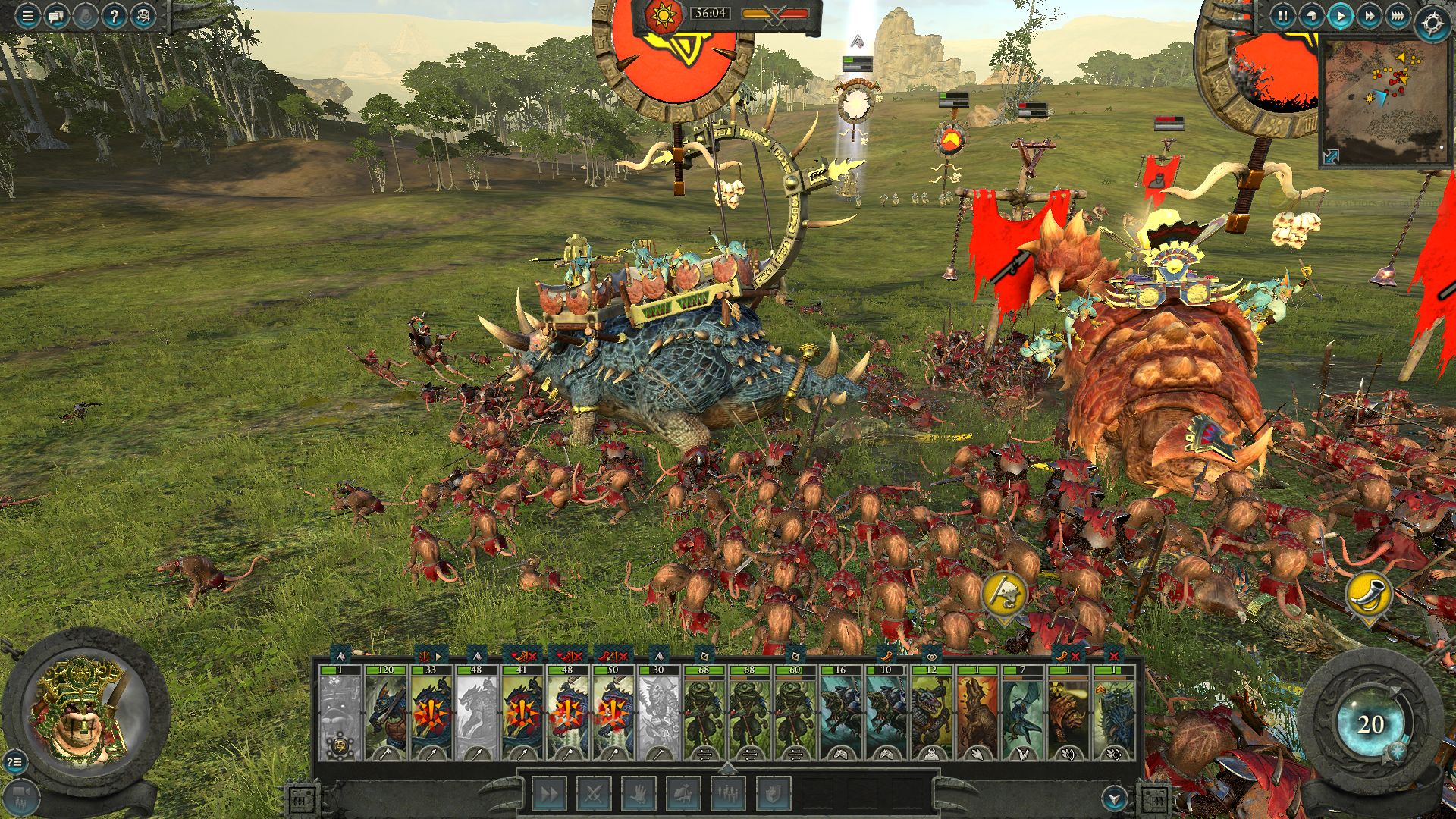
The first Number State of war: Warhammer showed that Games Workshop's fantasize universe was a perfect match for Creative Assembly's massive battles and impressively detailed units. Sum State of war: Warhammer 2 makes a entirely host of improvements, in interface, tweaks to heroes, rogue armies that mix factions unitedly and Thomas More. The game's four factions, Skaven, Screechy Elves, Dark Elves and Lizardmen are complete meaningfully different from unity some other, delving deeper into the left over corners of old Warhammer fantasy traditional knowledge. If you'ray looking for a terminus a quo with CA's Warhammer games, this is straightaway the game to experience—and if you already own the excellent original, too, the mortal empires campaign will unite both games into one giant map.
Europa Universalis 4

Paradox's long-running, flagship scheme romp is the ultimate grand strategy halting, putt you in charge of a nation from the goal of the Middle Ages the whole way adequate to the 1800s. As head boss, you determine its political strategy, meddle with its economic system, command its armies and craft an empire.
Right from the get-go, Europa Universalis 4 lets you start changing history. Mayhap England crushes France in the 100 Geezerhood War and builds a massive continental empire. Maybe the Iroquois defeat European colonists, build ships and infest the Old World. IT's Brobdingnagian, tangled, and through geezerhood of expansions has just kept thriving. The pretending can sometimes be tough-skinned to wrap one's head around, but IT's meriting diving in and just seeing where alt-history takes you.
4X
Region
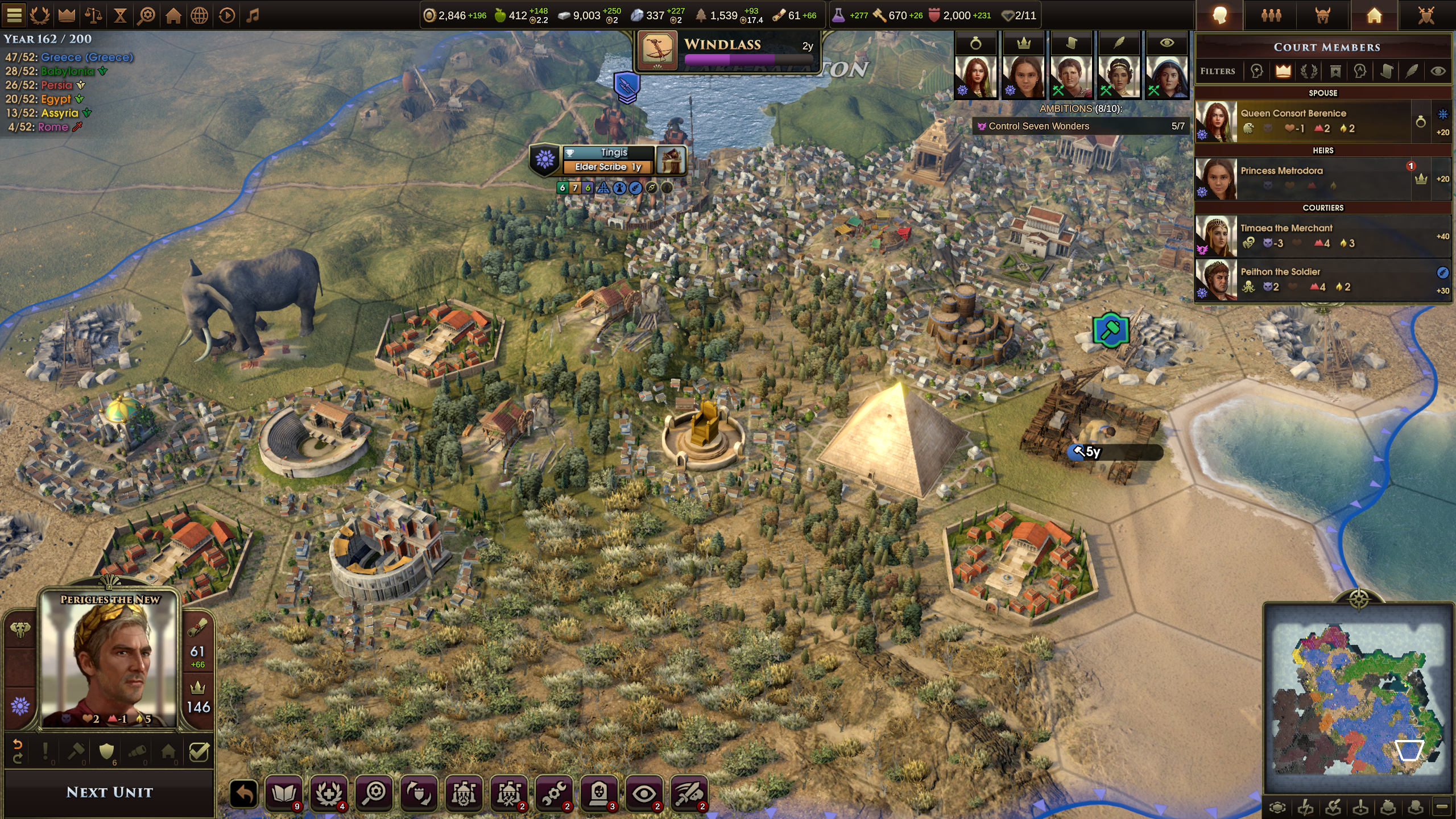
Fewer 4X games try to challenge Civ, but Old World already had a branch up thanks intriguer Soren Lyndon Johnson's previous relationship with the serial. He was the lead designer happening Civ 4, and that legacy is very apparent. Only Old World is more than another undertake Civ. For one, it's set exclusively in antiquity rather than charting the track of fallible chronicle, but that change in scope also allows it to concentre on people as well as empires.
Instead of playing an immortal ruler, you play one who very lives, getting married, having kids and eventually eager. Then you play their inheritor. You have courtiers, spouses, children and rivals to worry about, and with this exploration of the human side of empire-building likewise comes a Bounty of events, plots and surprises. You might even find yourself assassinated by a sept member. There's more than a hint of Crusader Kings here.
Civilization 6
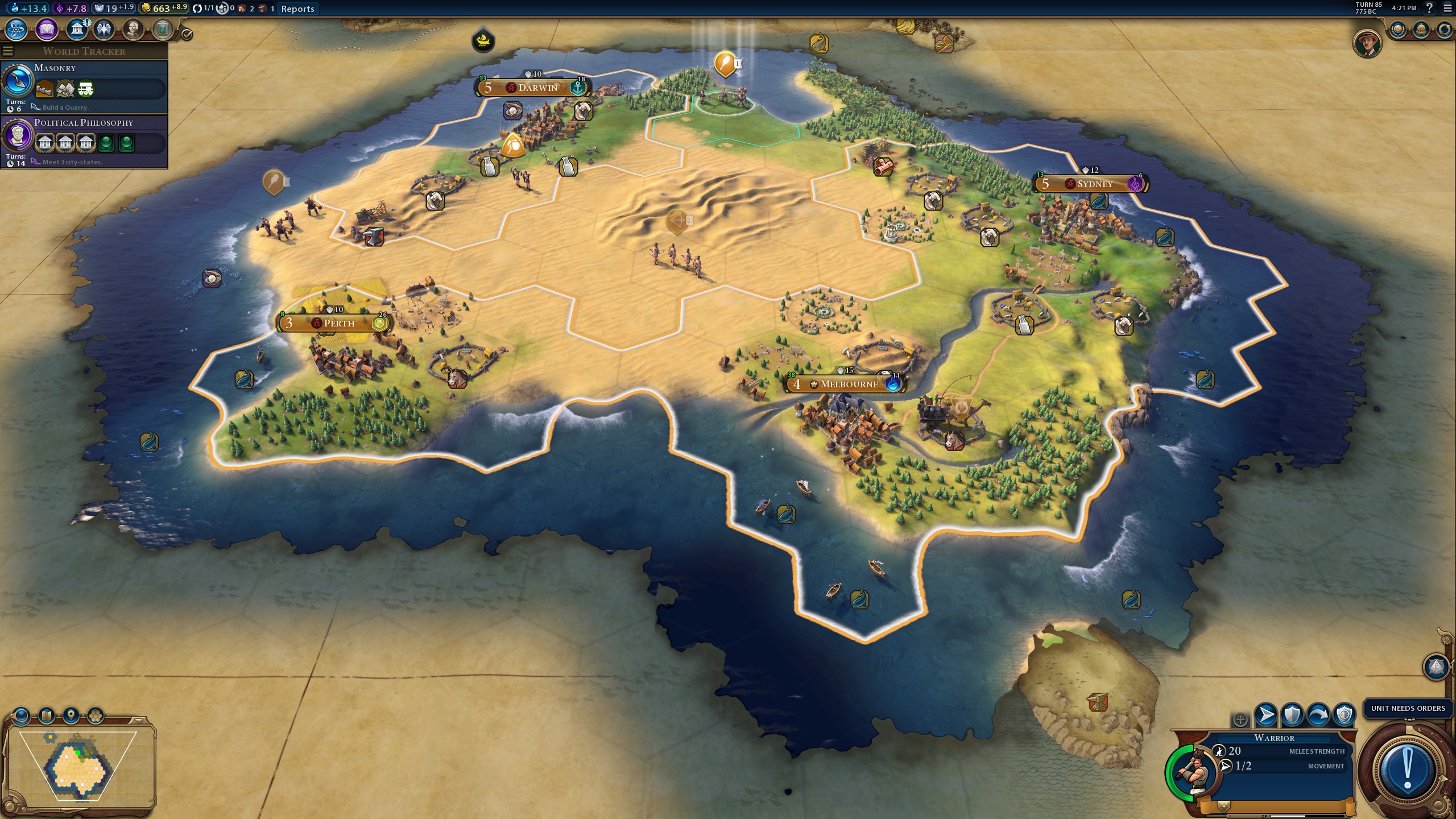
You can't have a best scheme games list without a bit of Civ. Civilization 6 is our biz of choice in the series right now, specially nowadays that it's seen a couple of expansions. The biggest change this time more or less is the zone organization, which unstacks cities in the way that its predecessor unstacked armies. Cities are now these sprawling things full of specialised areas that force you to truly think about the future when you developing tiles.
The expansions added some more original wrinkles that are very welcome but do full point short of revolutionising the venerable series. They stick in the conception of Gold Ages and Dark Ages, giving you bonuses and debuffs depending on your civilisation's ontogeny across the age, too atomic number 3 climate change and environmental disasters. It's a forward-thinking, modern Civ.
Sins of a Solar Empire
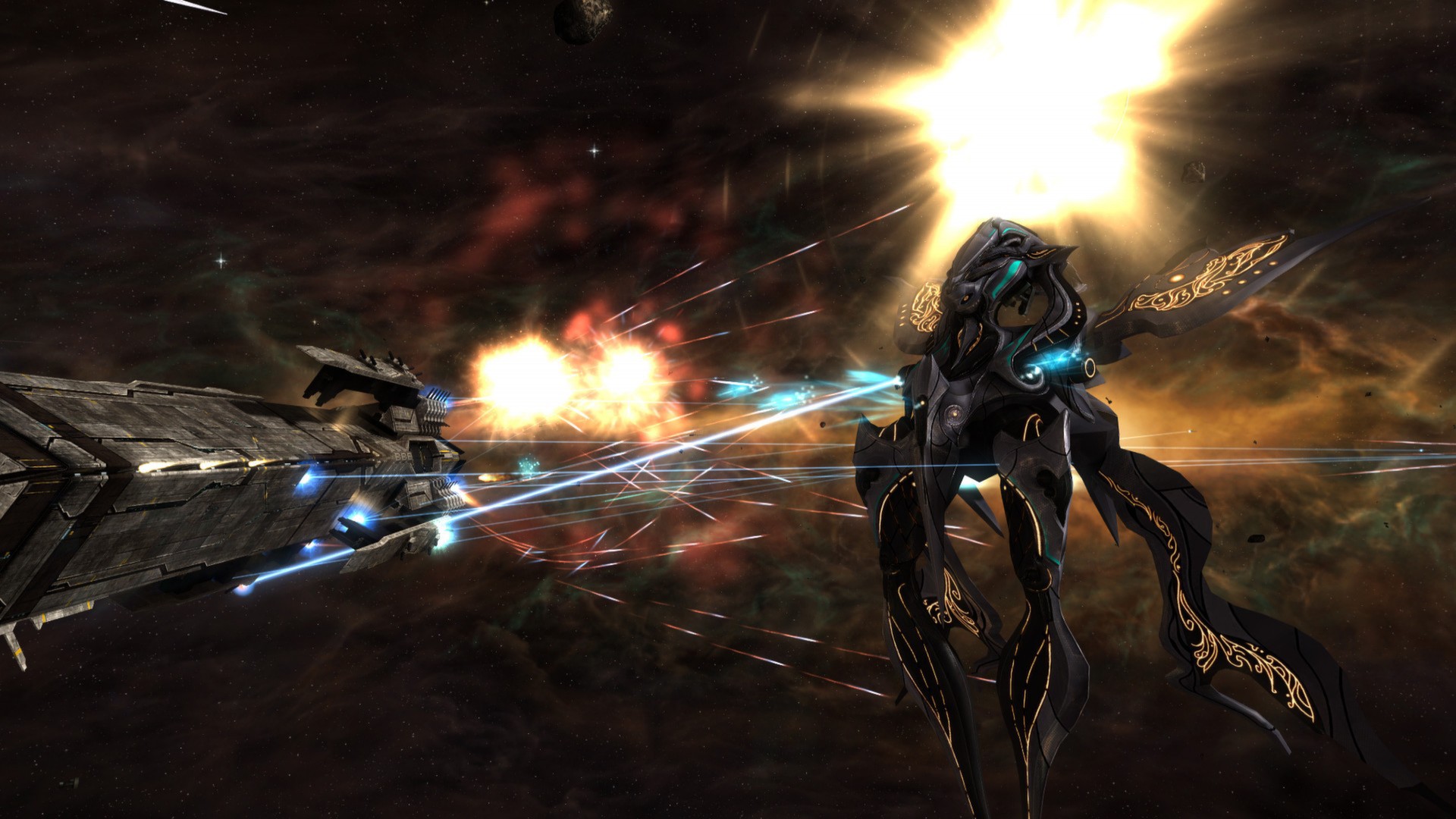
Sins of a Solar Imperium captures roughly of the scope of a 4X strategy game but makes it work within an RTS framework. This is a game about star-spanning empires that turn out, stabilise and fall in the space of an afternoon: and, particularly, most the present moment when the vast capital ships of those empires emerge from hyperspace above fractional-burning worlds. Diplomacy is an alternative too, of course, but also: giant spaceships. Play the Rebellion expansion to expound aforesaid spaceships to pathetic proportions.
Stellaris
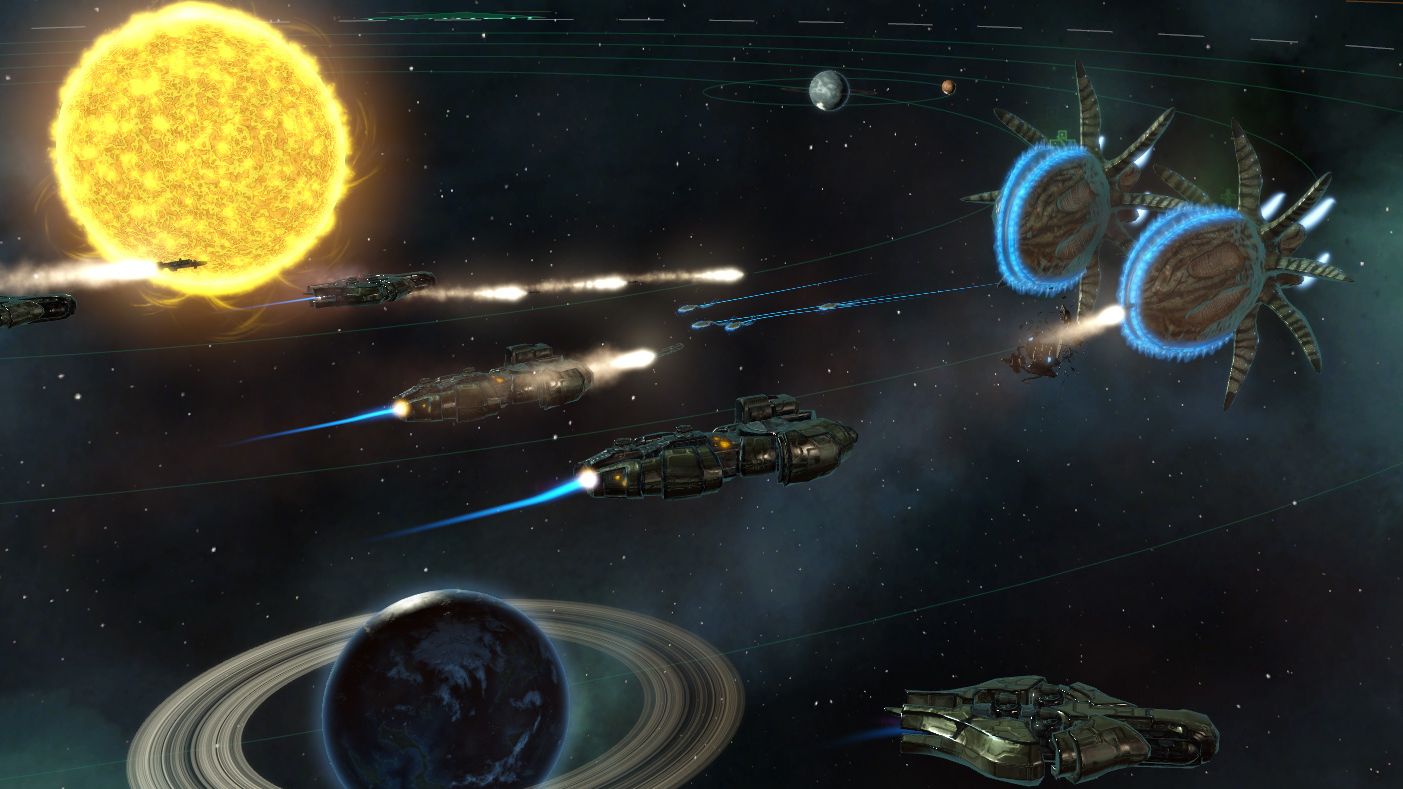
Stellaris takes an 'everything and the kicthen sink' approach to the space 4X. IT's got a dose of EU4, Paradox's tremendous strategy game, but applied to a sci-fi game that contains everything from robotic uprisings to aliens living in black holes. It arguably tries to do to much and lacks the stress of some of the other genre greats, merely as a celebration of celestial body sci-fi there are none that come close. IT's a liberating sandbox designed to generate a cavalcade of stories as you guide your species and empire through the stars, intrusive with their genetical code, enslaving aliens, or consuming the galaxy as a voracious hive of cunning insects.
Endless Legend
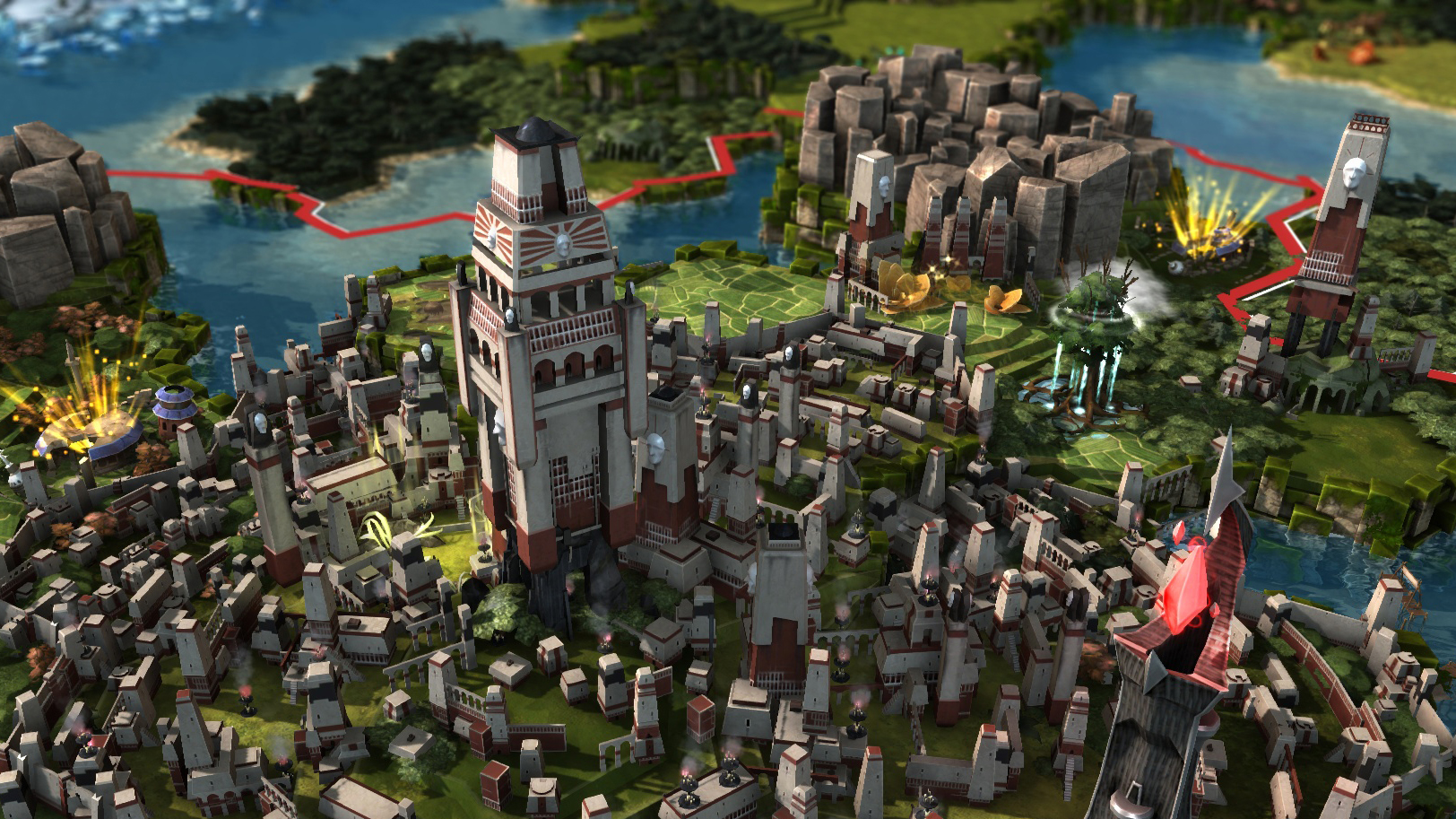
Fantasize 4X Endless Legend is proof that you don't need to sacrifice story to make a powerful 4X gamey. Each of its asymmetrical factions sports all sorts of unique and rummy traits, el by story quests featuring few of the best composition in any scheme game. The Broken Lords, for instance, are vampiric ghosts living in suits of armour, wrestling with their dangerous nature; while the necrophage is a relentless force of nature that vindicatory wants to ingest, ignoring diplomacy in favor of thorough conquest. Including the expansions, there are 13 factions, each blessed surgery curst their own singular quirks. Faction intent doesn't fetch better than this.
Of import Centauri
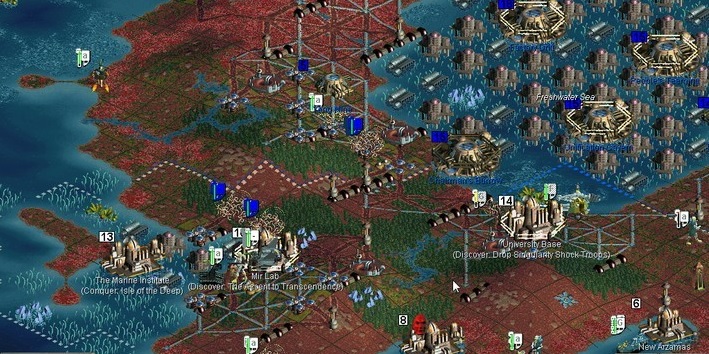
Civ in space is a convenient shorthand for Alpha Centauri, but a bit reductive. Brian Reynolds' driven 4X journey took us to a mind-worm-troubled world and ditched nation states and empires in favour of ideological factions who were adamant that they could guide mankind to its next evolution.
The techs, the conflicts, the characters—it was unlike any of its generation and, with only a few exceptions, nobody has really attempted to replicate it. Not even when Firaxis literally made a Civ in space, which wasn't very good. Rigil Kent is as fascinating and weird now as it was back in '99, when we were first getting our taste of brass stapling naughty drones and getting into withal some other warfare with Sister Miriam.
More than 20 years later, around of us are still holding impossible trust for Alpha Centauri 2.
Age of Wonders: Planetfall
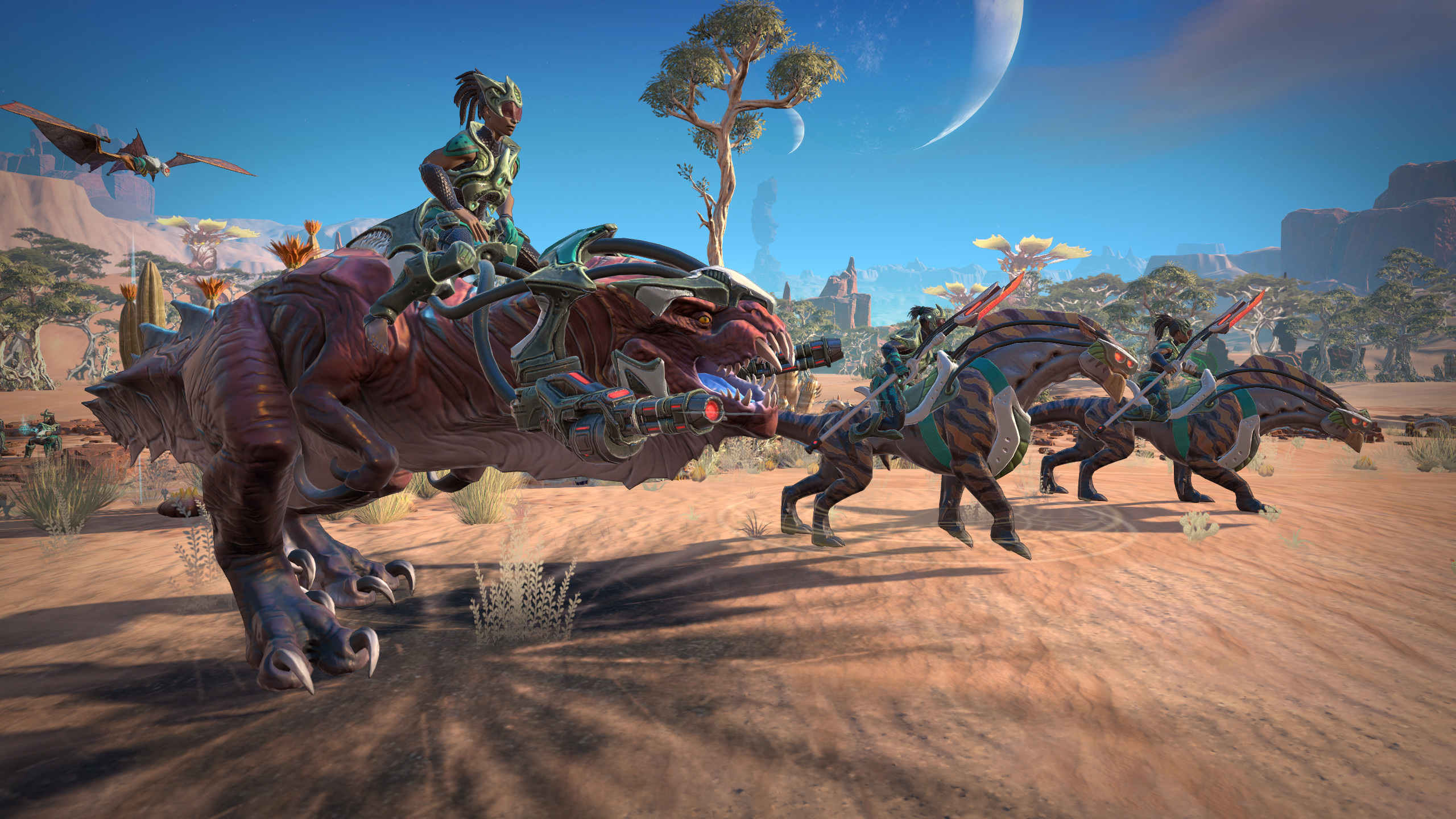
Pick an Historic period of Wonders and you truly fire't miscarry. If sci-fi isn't your thing, absolutely give Age of Wonders 3 a try, only it's Age of Wonders: Planetfall that's got us all hot and bothered at the moment. Nonmoving in a galaxy that's wakeful up after a long historical period of decline, you've got to squabble over a animated world with a bunch of other ambitious factions that run the gamut from dinosaur-riding Amazons to paranormal bugs.
The methodical empire building is a large-mouthed melioration over its fantastic predecessors, benefiting from big changes to its structure and pace, but even as engaging are the turn-based tactical battles between highly customisable units. Stick lasers connected giant lizards, give everyone jetpacks, and nurture your heroes like they're RPG protagonists—there's soh much fiddling to coif, and it's all great.
RTS
Iron Harvest
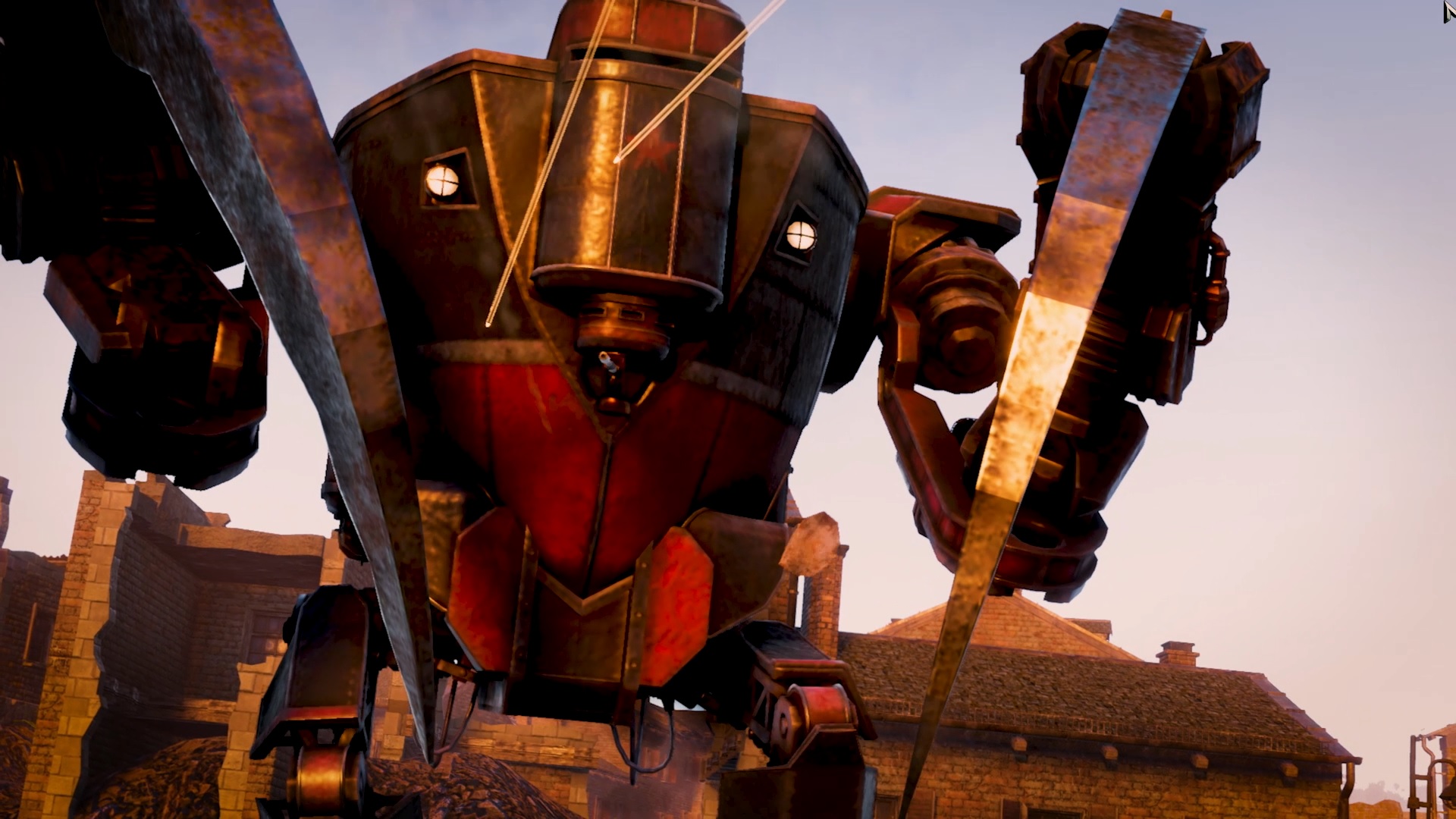
If you played Company of Heroes and thinking "What this really needs is just about giant mechs", Iron Glean might exist the RTS for you. Set in an alternate 1920's Europe, factions duke it out with squishy soldiers, tanks and, the headline attraction, clunky steampunk mechs. There are plenitude of them, from little exosuits to massive, smoke-spewing behemoths, and they're completely much of fun to play with and, crucially, blow up.
Iron out Harvest does love its explosions. When the sprinkle settles after a big press, you'll hardly recognise the sphere. Thanks to mortars, tank shells and mechs that can walk right through buildings, wait little to remain standing. The layer of death is as awe-inspiring as it is grim. To cheer yourself raised, you can watch a conduct fight a mech. Each faction has a heroic unit, each accompanied by their very own pet. All of them consume more or less handy unique abilities, and yes, they can go toenail-to-toe with solid war machines.
Battlefleet Gothic: Armada 2
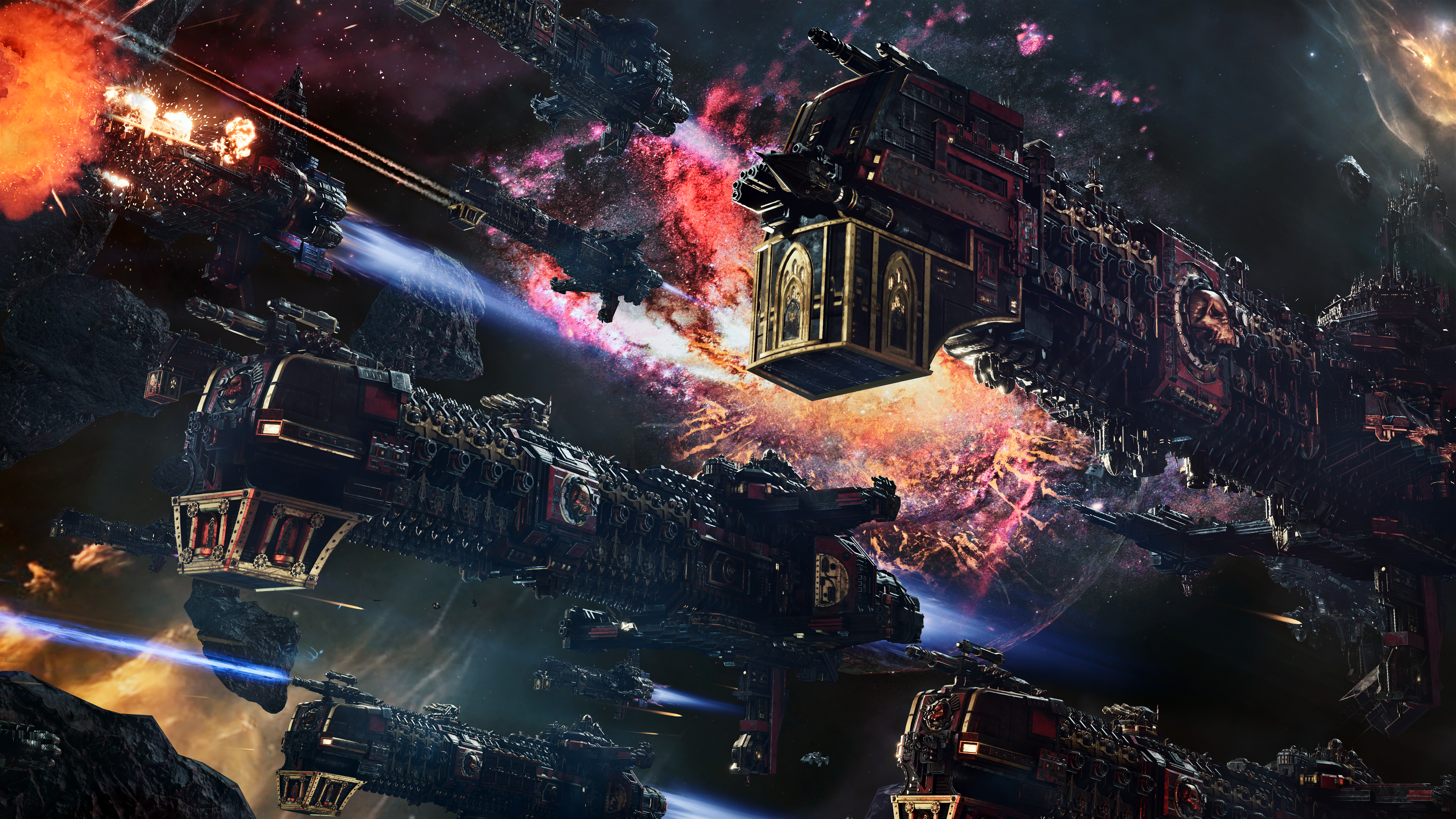
Battlefleet Gothic: Armada 2's cosmic battles are striking. There's a trio of vaguely 4X-y campaigns following the three of the Warhammer 40K factions: The Imperium, Necron Empire and the nasty Tyranid Hives, but you can brush off them if you want and upright dive into some messy skirmishes full of spiky space cathedrals colliding with behemoth, tentacle-covered leviathans.
The real-clip plan of action combat manages to be exciting even when you're high the most soggy of armadas. You need to manage a whole fleet patc broadside attacks pound your hulls, enemies originate boarding and your own crews turn mutinous. And with complete the tabletop factions inst, you can experimentation with unnumbered fleet configurations and play with all sorts of eldritch weapons.
Northgard
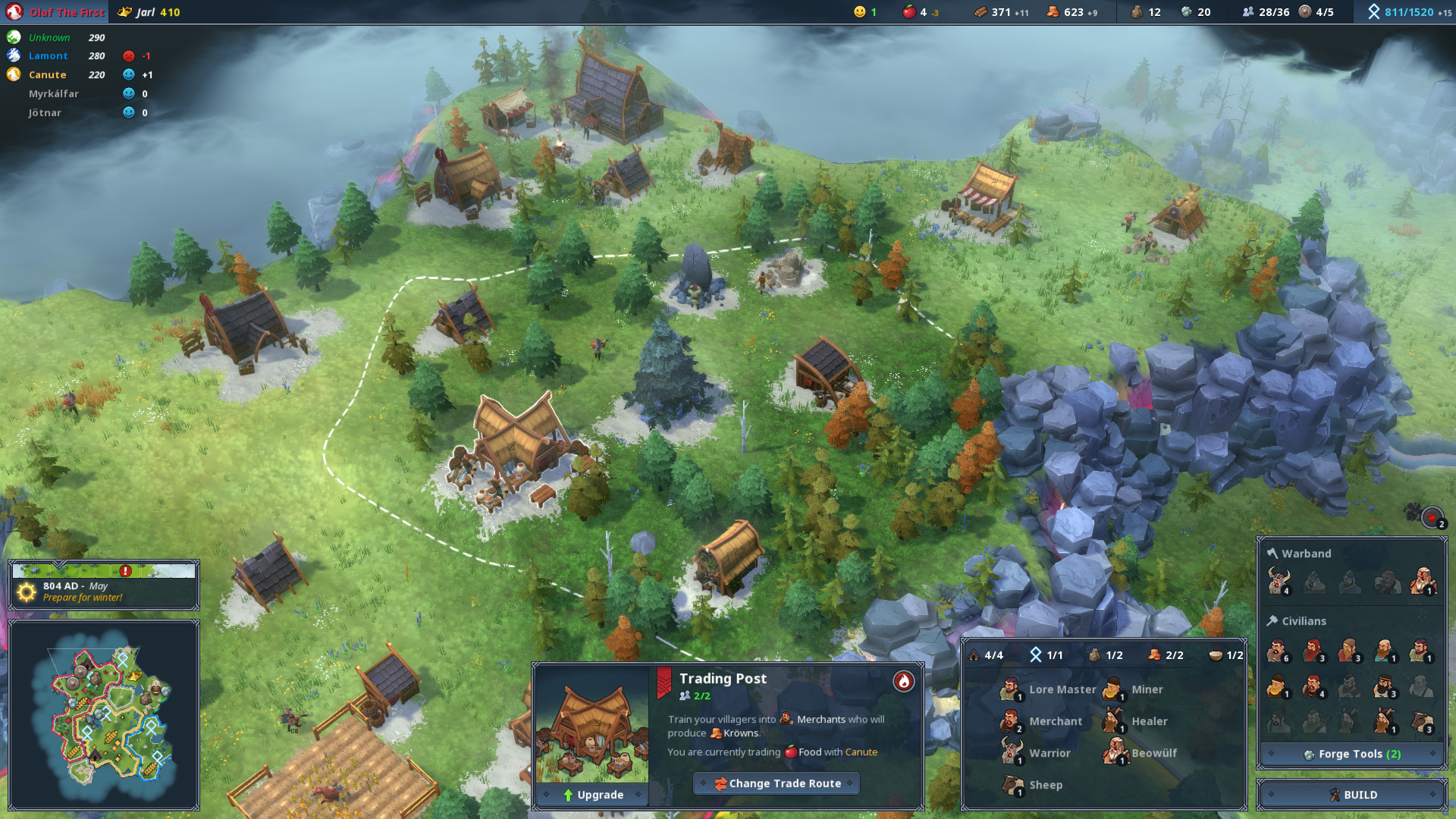
Viking-themed RTS Northgard pays dues to Settlers and Age of Empires, but challenged us with its sharp expansion systems that force you to plan your growth into new territories carefully. Weather is important, too. You take to brace oneself for overwinter carefully, but if you technical school up exploitation 'lore' you might stimulate better warm weather gear than your enemies, giving you a strategical advantage. Skip through the dull story, enjoy the well-configured campaign missions and then protrude the material fight in the skirmish mode.
Homeworld
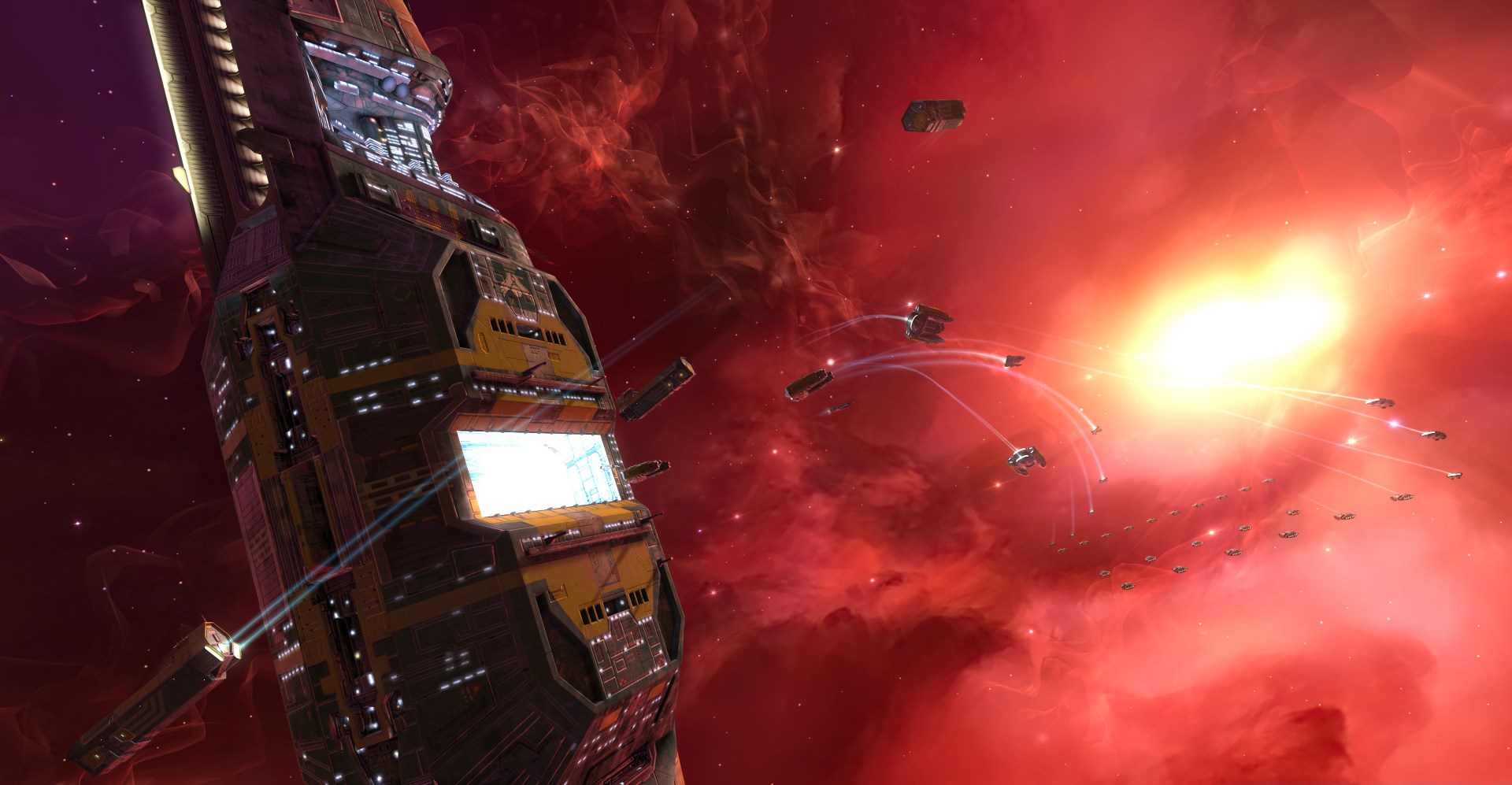
Automatically, Homeworld is a phenomenal trey-multidimensional scheme gage, among the first to with success detach the RTS from a single plane. IT's more than that, though: information technology's a stellar triumph for atmosphere and sound plan, whether that's Adagio for Strings playing over the haunting opening missions or the beat of drums Eastern Samoa ships engage in a multiplayer battle. If you liked the Battlestar Galactica reboot, operating theater just battlemented a pleasing yarn in your RTS, you should act as this.
Thanks to the Homeworld Remastered Collection, it's aged very well. The remasters maintain Homeworld and its sequel's incredible air, along with all the early large bits, but with updated art, textures, audio frequency, UI—the lot. Everything is in keeping with the spirit of the original, but it just looks and sounds wagerer.
Require &ere; Conquer: Red Warning signal 2

Nigh of Westwood's C&C entries are ace—but Red Alert 2 has the Sunday-go-to-meeting campaigns, most interesting units, great maps and naturally, good FMV sequences. The different factions are so distinct, and let more personality than they did in the original game—hence Soviet squids and Allied dolphins. They found the letter-perfect tonal balance between self-awareness and sincerity in the cutscenes, atomic number 3 well—they're played for laughs, but still think about and engage.
Homeworld: Deserts of Kharak
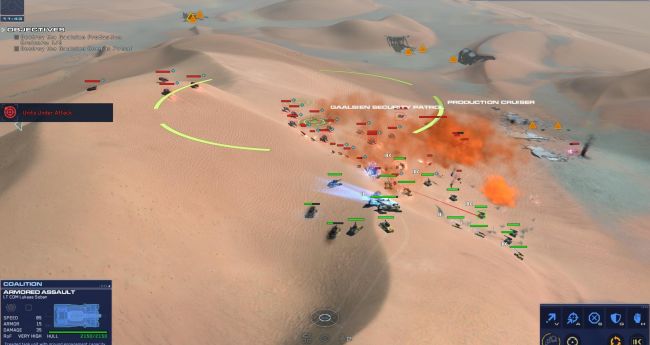
Homeworld: Deserts of Kharak sounded almost sacrilegious at first. Over a decade since the last Homeworld game, it was going to take a game remembered for its spaceships and 3D movement and turn it into a ground-based RTS with tanks? And it was a prequel? Yet in spite of altogether the slipway this could have gone dreadfully wrong, Deserts of Kharak succeeds happening virtually every counting. It's not only a terrific RTS that sets itself unconnected from the rest of the genre's recent games, but it's also an first-class Homeworld game that reinvents the series while also recapturing its magic.
Maximum Commander
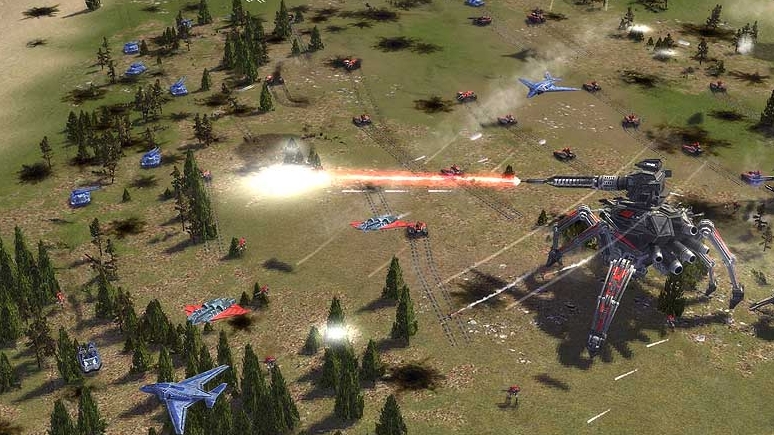
Lonesome Unconditioned War can compete with the scale leaf of Supreme Commander's real-fourth dimension battles. It's still exhilarating to flick the mousewheel and fly from an individualist engineer to a map of the uncastrated field of battle, then flick IT again to dive downbound to give orders to another whole kilometres away. When armies dress clash—in sprawl hundred-strong columns of robots—you'rhenium rewarded with the most blest firefights a C.P.U. can render. Information technology's one of the few real-time strategy games to mix air, ground and naval combat into single encounters, just SupCom goes even further, with artillery, long-graze nuclear heavy weapon and megalithic experimental bots.
StarCraft 2
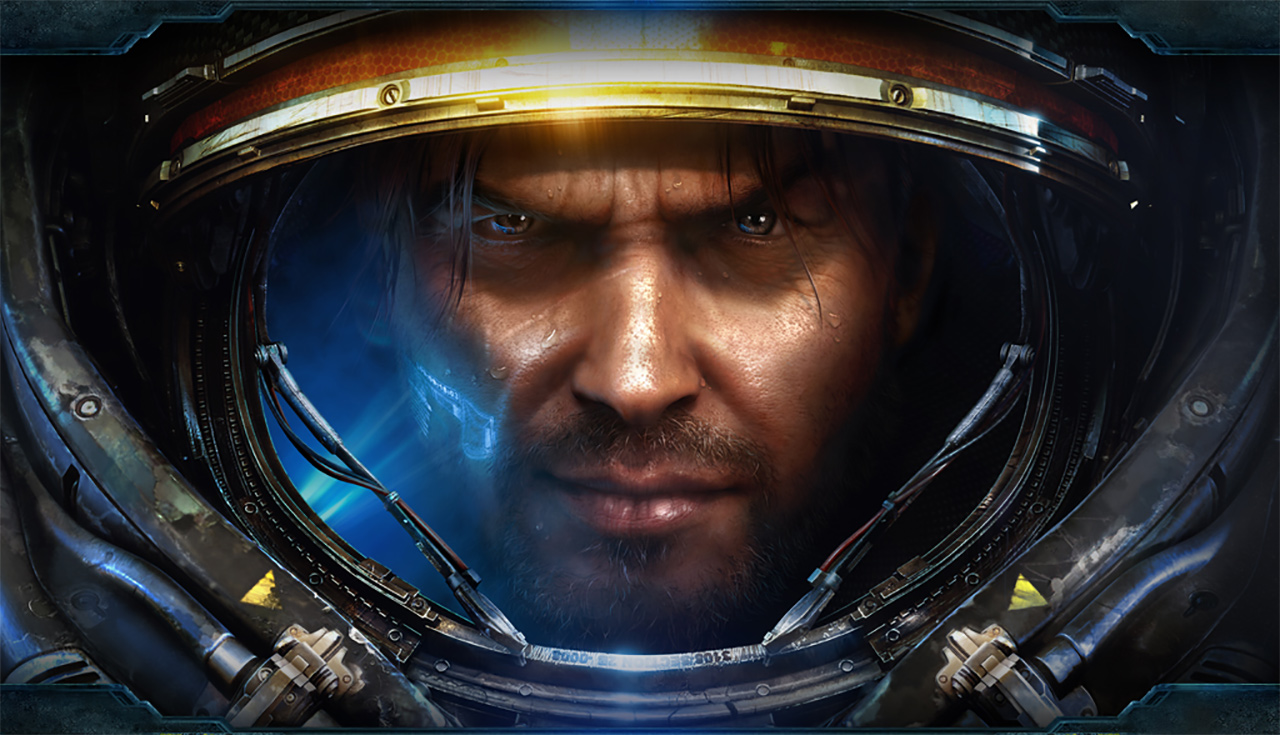
In addition to being the preeminent competitive strategy game of the last decade, StarCraft 2 deserves course credit for rethinking how a traditional RTS campaign is structured. Heart of the Swarm is a goodness example of this, but the human-centric Wings of Indecorum instalment is the pose to first: an inventive adventure that mixes up the familiar formula at every present. From zombie defence scenarios to planets that flood with lava every few minutes, you're forced to read and relearn StarCraft's rudimentary elements as you move out.
In 2020, Blizzard finally decided to wind down development connected StarCraft 2, announcing that no new additions would be coming, excursus from things the like Libra fixes. The competitive scene is still very much alive, however, and you'll still find some singleplayer campaigns as just as these ones.
Warcraft 3
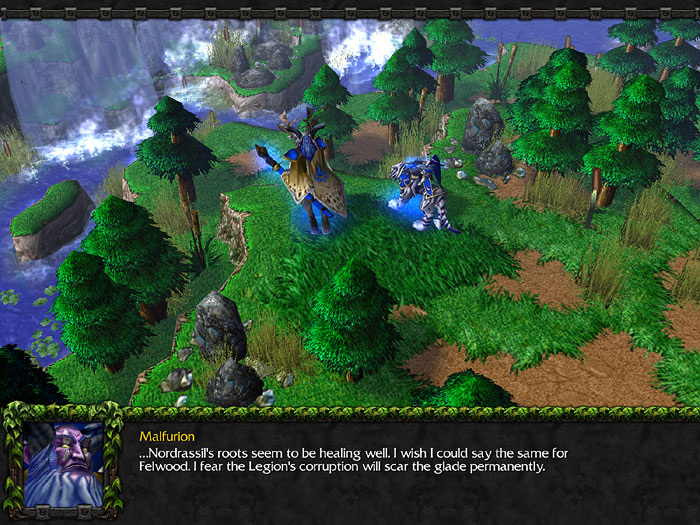
Most notable today for being the point of origin for the entire MOBA genre, Warcraft III is also an creative, ambitious scheme game in its own right, which took the genre beyond nameless little sprites and into the land of cinematic fantasy. The pioneering inclusion of RPG elements in the form of heroes and neutral monsters adds a degree of unitspecific depth not present in its sci-fi stablemate, and the sprawling campaign delivers a fantasy story that—if not rather novel—is thorough and exciting in its execution. It also has the best 'perennial social unit get across' jokes in the business. Shame about Warcraft 3: Reforged, IT's non-and then-outstanding remake.
Company of Heroes
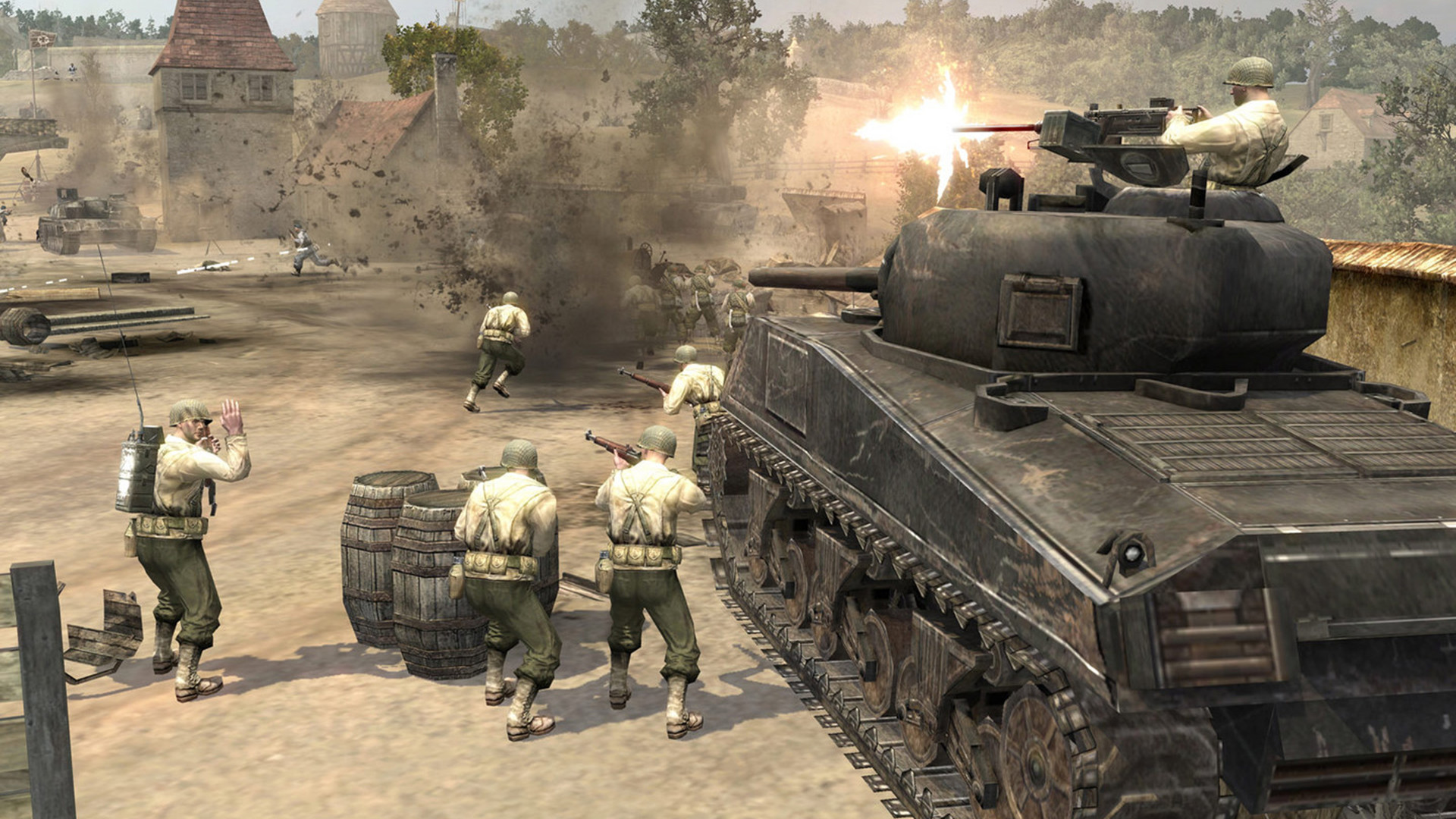
Some games would essay to measure away from the emotional aspect of a state of war that happened in absolute memory. Not Company of Heroes. It's fervid and difficult and brutal. Sure, its methods are pure Hollywood—the muddy artillery plumes could wealthy person come through straight from Redemptive Private Ryan—but the consequence is the most intense RTS ever made, brilliantly capturing the tactical repulsion between WWII's asymmetrical forces.
Rise of Nations
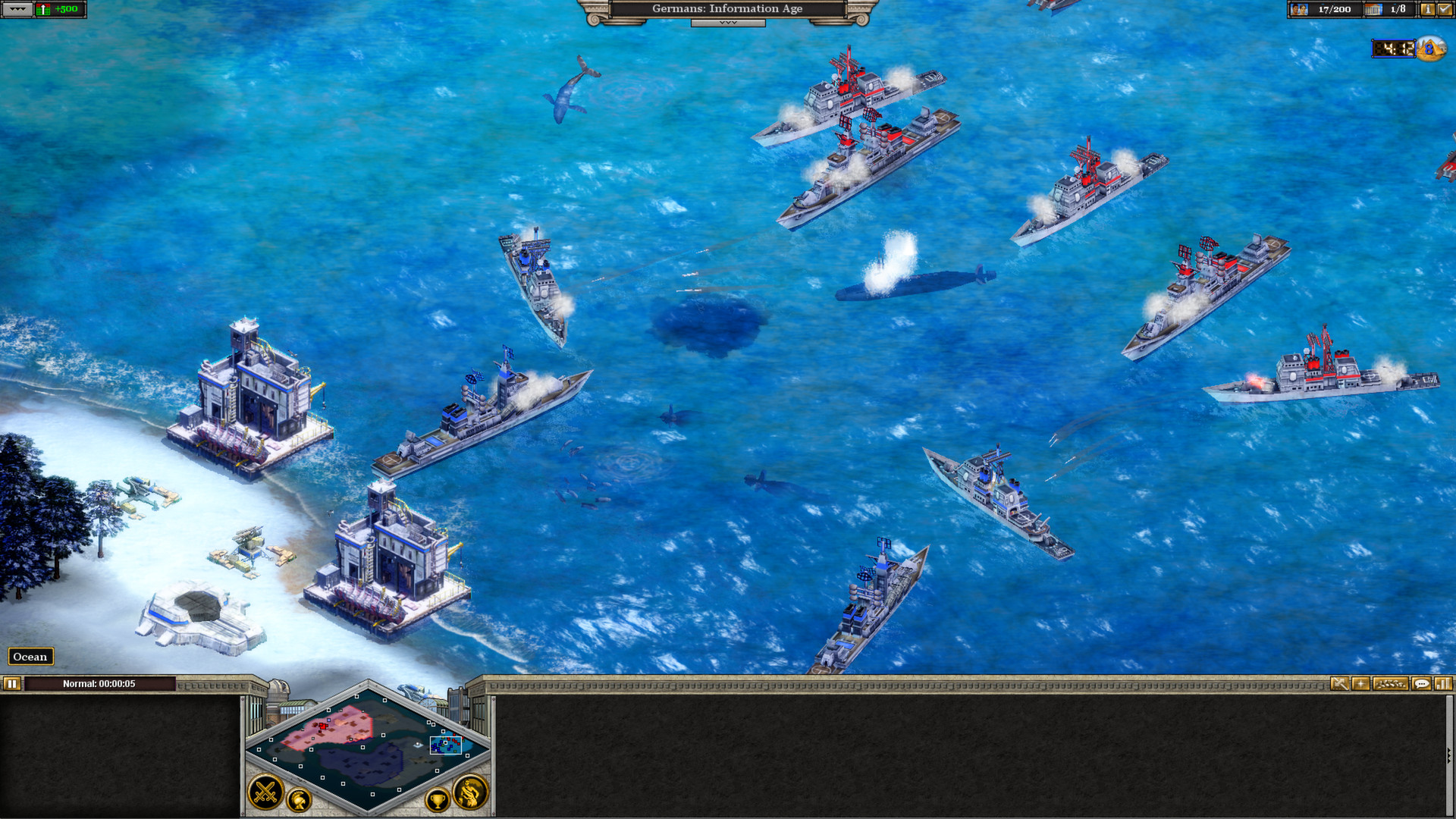
Age of Empires gave us the chance to encompass centuries of military progress in half-time of day battles, but Rise of Nations does it better, and smartly introduces elements from turn-based strategy games like Civ. Alternatively of marshalling troops from a single immoral, you frame cities all over the map to grow your nation's borders. When borders collide civs rush along through the ages and try to out-tech each other in a hidden state of war for tempt, all spell nerve-racking to deliver a knockout military flub with javelins and blue jets. There aren't enough games that let you crush longbowmen with amphibious tanks and stealth bombers.
Warhammer 40,000: Dawn of War 2
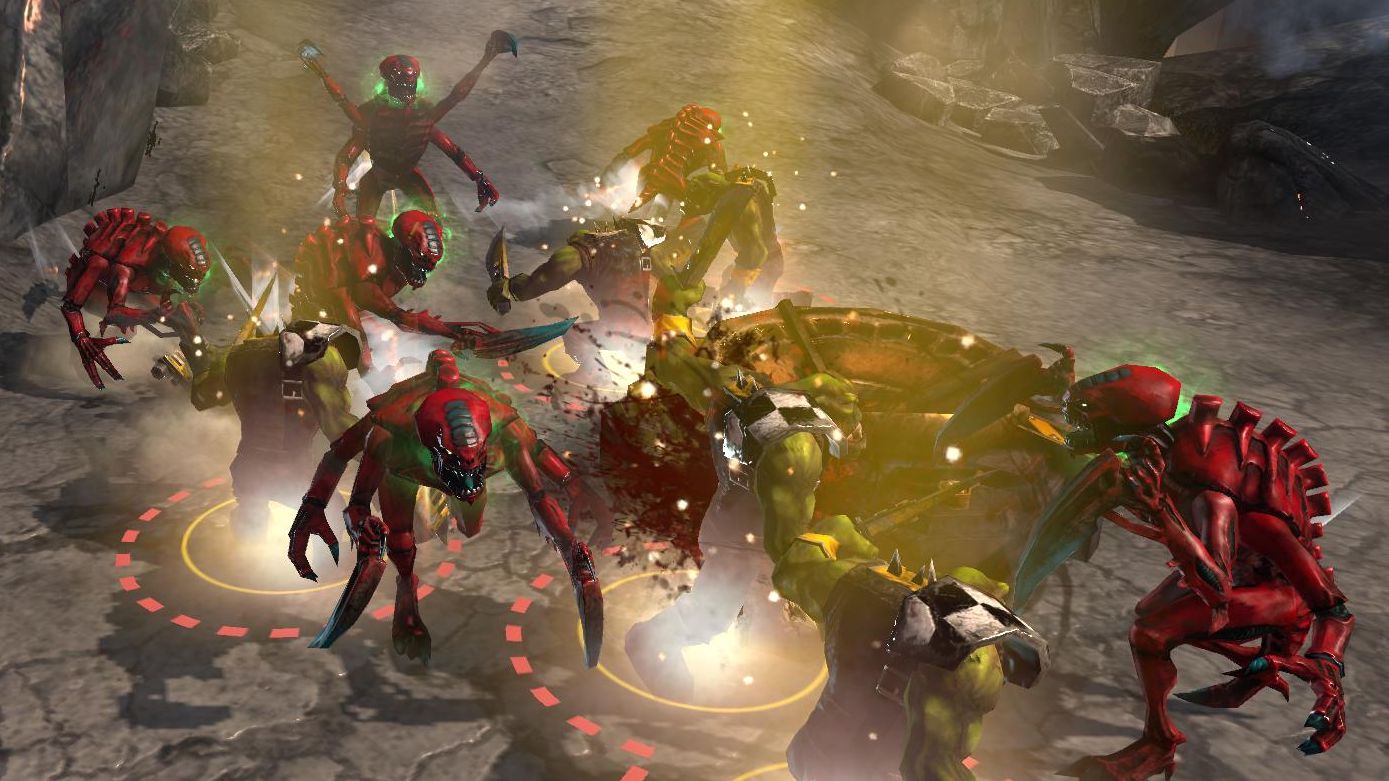
Information technology was tempting to put the excellent first Dawn of War on the number, but the box-select, right-click to kill pattern is well represented. Instead lease's take account the experimental sequel, which replaced vast units with a handful of rock and roll-toilsome space bastards, to each one with a cluster of sea wolf abilities. In armed combat you micromanage these empowered uncommon forces, timing the flying attack of your Assault United States Marines and the sniping power of your Scouts with efficient heavily machine gun cover to unwrap the Ork hordes. The cobalt-operative Last Stand mode is besides immense.
If you need a 40K locating, we've also ranked every Warhammer 40,000 plot.
Tactics
Battletech
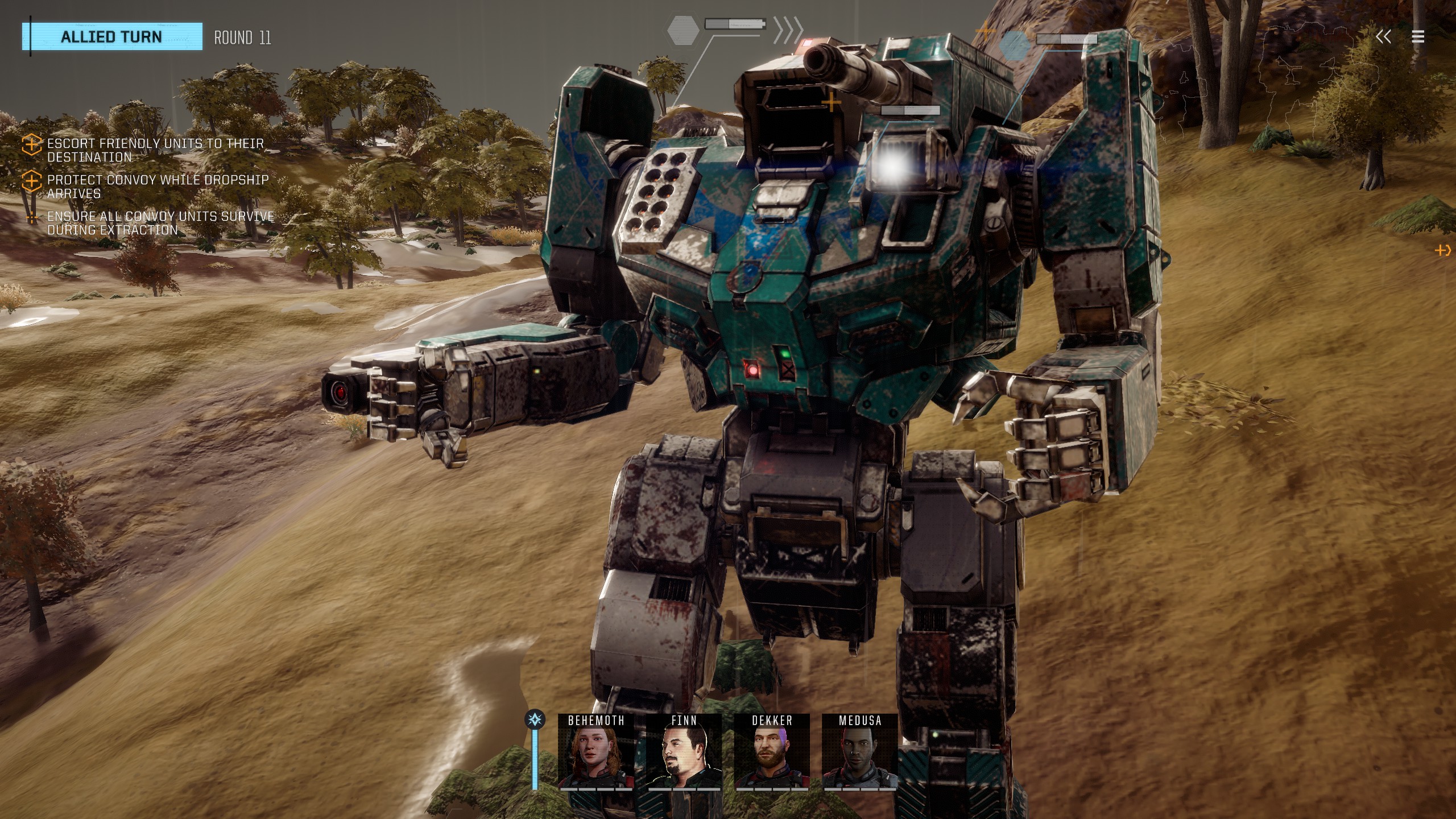
Like an adaptation of the tabletop game crossed with the XCOM design guide, BattleTech is a incomprehensible and complex reverse-founded crippled with an impressive campaign system. You control a radical of mercenaries, difficult to keep the books balanced and upgrading your suite of mechwarriors and battlemechs in the courageous's strategy bed. In conflict, you quarry specific parts of enemy mechs, taking into account armor, lean, speed and the circumferent environment, then make difficult choices when the fight International Relations and Security Network't going your way. Information technology can initially be overwhelming and it's undeniably a dense game, but if that's what you want from your strategy games or you love this universe, it's a smashing pick.
Into the Violate
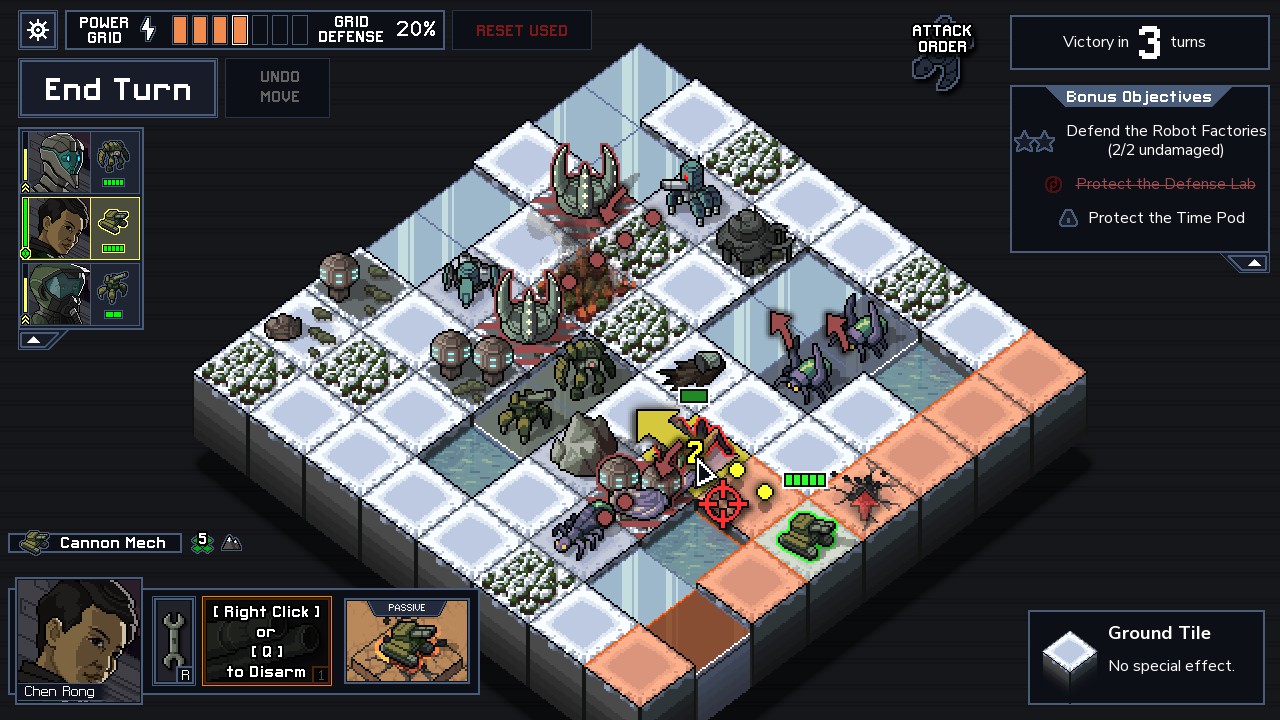
A beautifully designed, all but-impeccable slice of tactical mech action from the creators of FTL. Into the Breach challenges you to stand murder waves of Vek monsters on eight-by-eight grids populated by tower blocks and a variety of submarine objectives. Obviously you want to deplete the Vek using mech-punches and artillery strikes, but much of the game is about using the encroachment of your blows to push enemies around the map and divert their attacks out from your precious buildings.
Civilian buildings allow power, which serves as a health bar for your campaign. Every clock a civilian building takes a hit, you're a step closer to losing the war. Once your ability is deficient your team travels backmost through and through time to try and save the world once more. Information technology's challenging, bite-cookie-sized, and dynamic. As you unlock inexperienced types of mechs and mech upgrades you gain creative new ways to toy with your enemies.
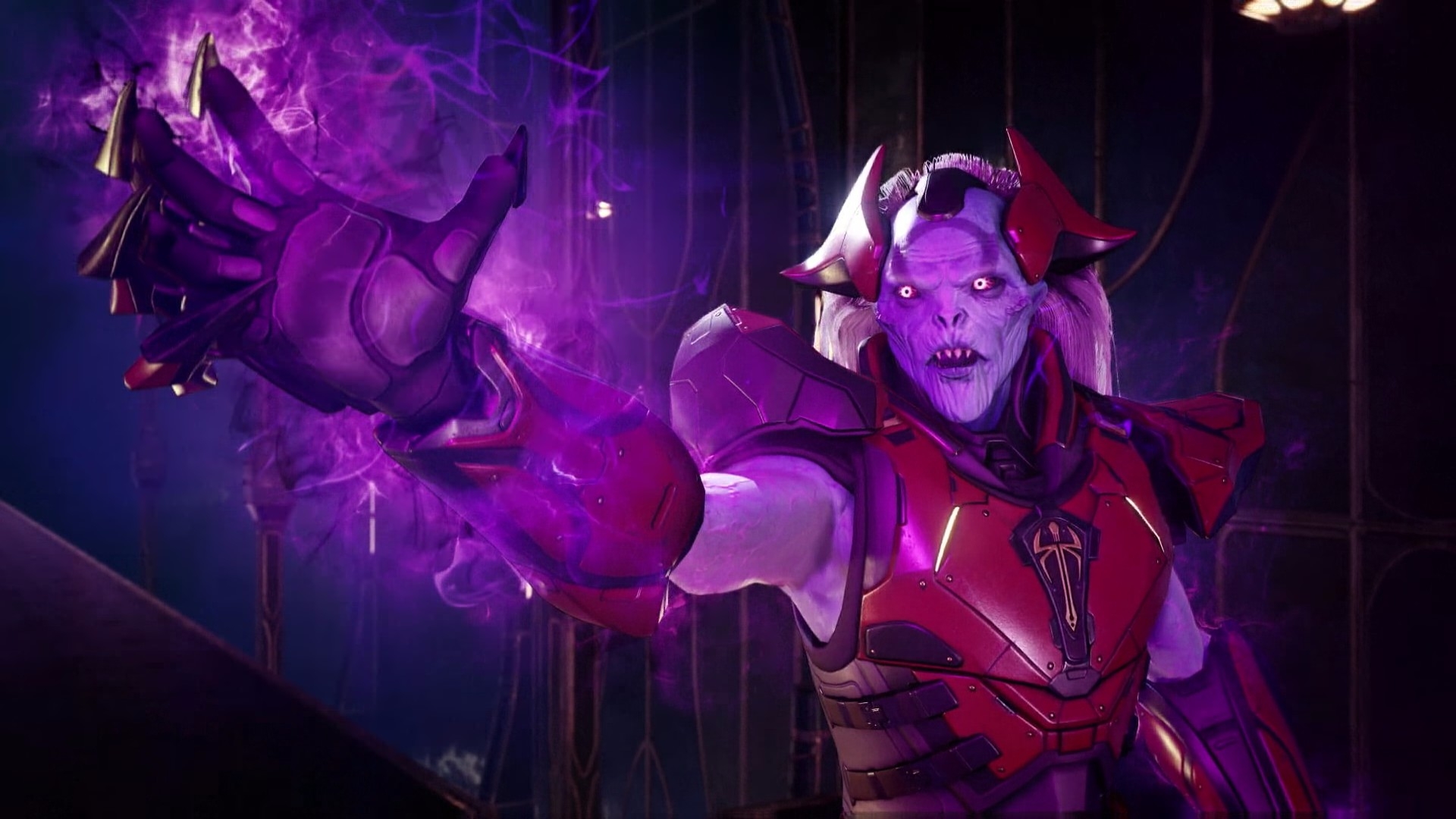
The game cleverly uses scarcity of chance to force you into arduous dilemmas. At any one time you might have only six assertable scan sites, while combat encounters are largely meted out by the game, but what you choose to do with this narrow range of options matters enormously. You call for to recruit unused rookies; you need an engineer to build a comms facility that will let you striking more territories; you demand extraterrestrial alloys to upgrade your weapons. You can't have all of these. You can probably only have one. In 1989 Sid Meier delineated games every bit "a series of newsworthy decisions." XCOM 2 is the purest expression of that ethos that Firaxis has even produced.
The War of the Chosen expansion brings even Thomas More welcome if delirious changes, equivalent the endlessly communicatory denomination enemies, unforgettable nemeses who pop up at several intervals during the campaign with random strengths and weaknesses.
Invisible Inc.
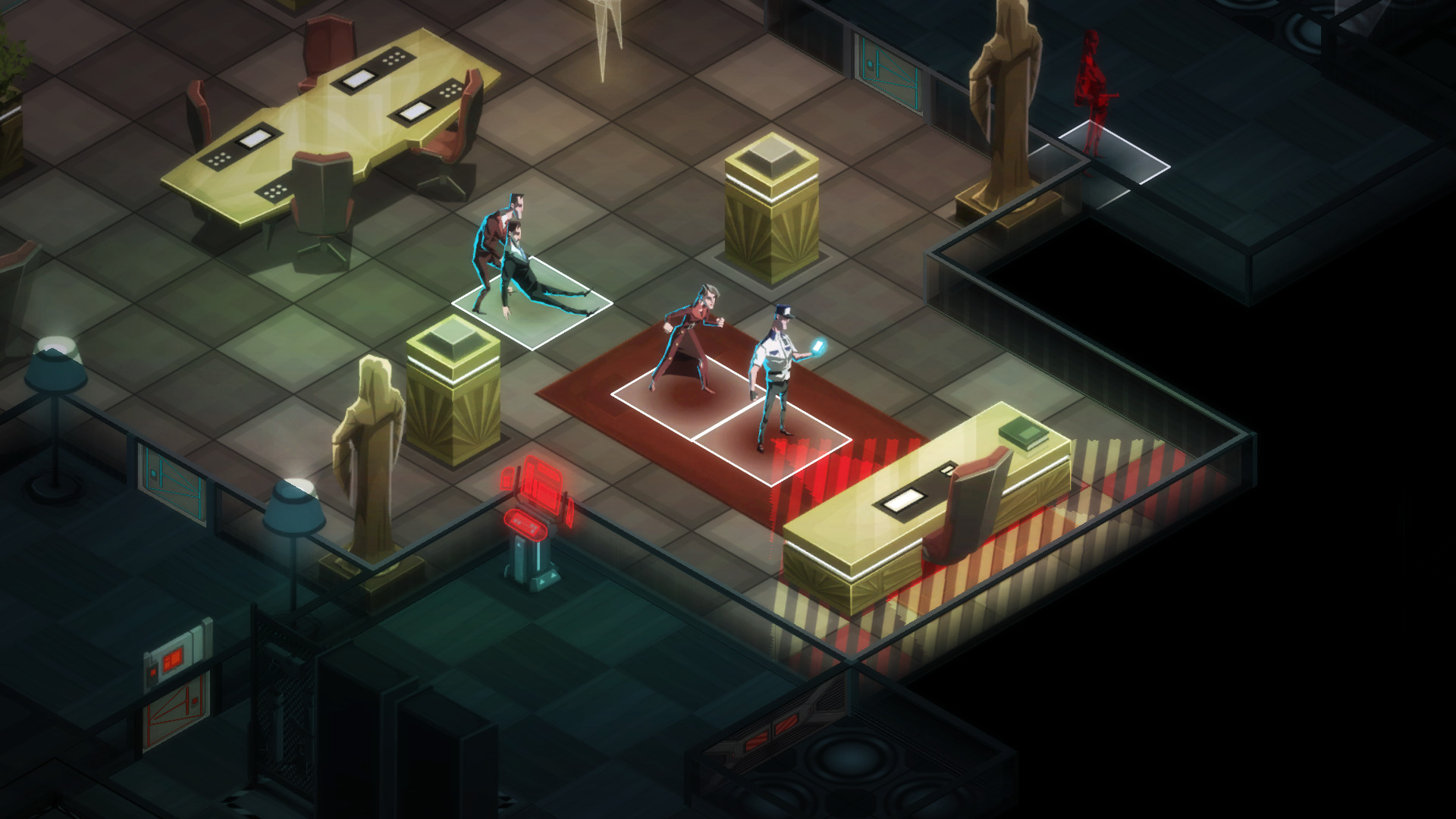
Sneaky tactics doesn't come in a slicker package than Invisible Inc., Klei's exceptional stealing-em-up. Information technology's a sexy cyberpunk espionage romp endued with such tension that you'll be sweating buckets as you slink done corporate strongholds and assay precise hard to not get caught. It's tricky, sometimes dauntingly so, but there's a chance you can hole your atrocious mistakes by rewinding time, adding roughly welcome accessibility to the proceedings.
Wargames
DEFCON
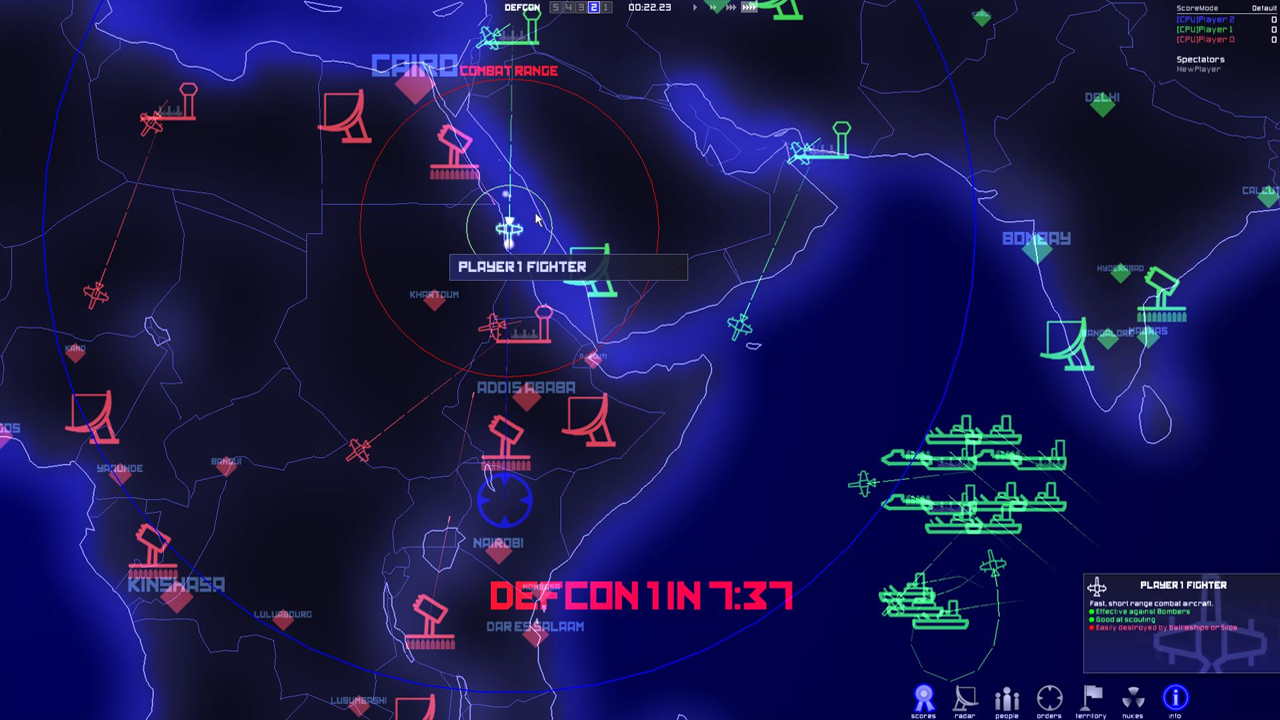
DEFCON's sinister blue world map is the perfect tense stage for this Cold War horror narrative around the outbreak of nuclear war. Introductory, you manage stockpiles, and position missile sites, nuclear submarines and countermeasures in preparedness for armageddon. This organisation stage is an interesting strategic challenge in itself, but DEFCON is at its most effective when the missiles fly. Blooming blast sites are twin with casualty numbers as city after city experiences obliteration. One time the dust has formed, triumph is a mere triviality. It's nightmarish, and quite brilliant in multiplayer.
I of Command 2
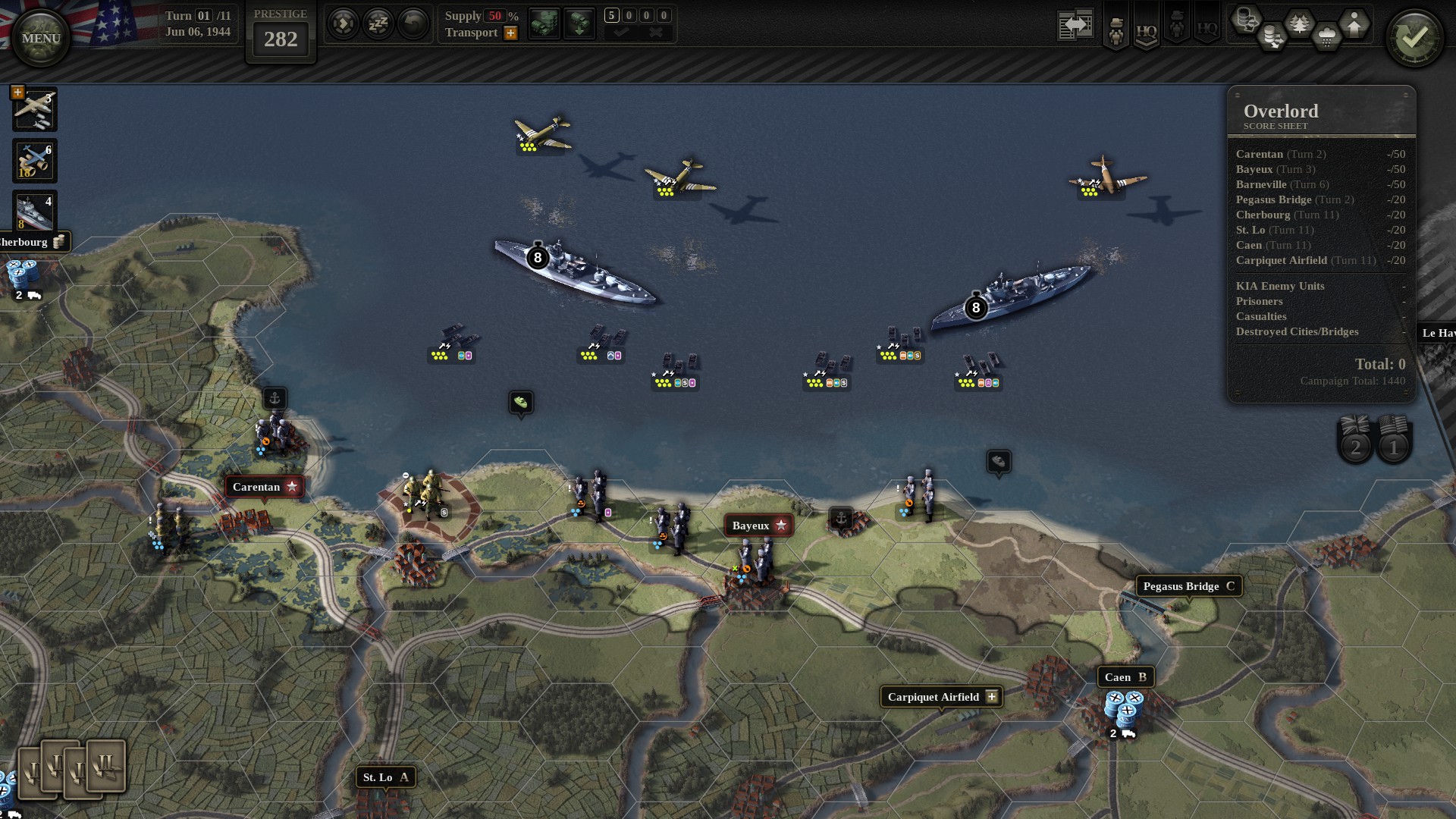
Unity of Command was already the unbroken first appearance point into the complex world of wargames, but Unity of Command 2 manages to maintain this spell throwing in a host of new features. It's a plan of action puzzle, but a reactive one where you hold the freedom to try tons of different solutions to its military conundrums. Not just a great aim to start, it's simply a brilliant wargame.
Hearts of Robust 4
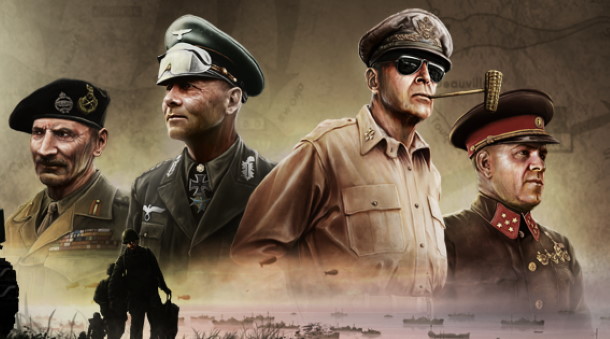
Hearts of Iron 4 is a grand strategy wargame loanblend, as well-situated with logistics and dead engagement plans as IT is with discreetness and sandboxy weirdness. Apparently game about World State of war 2, it lets you throw prohibited history as before long as you want. Deficiency to conquer the world as a communist UK? Hold it. Maybe Germany will be out of the war early, departure Italian Republic to run things. You can even hold on things going for as eight-day equally you want, leading to a WW2 that continues into the '50s or '60s. With expansions, it's full-clad naval battles, espionage and other features so you have control over nearly all aspect of the war.
Steel Division: Normandy 44
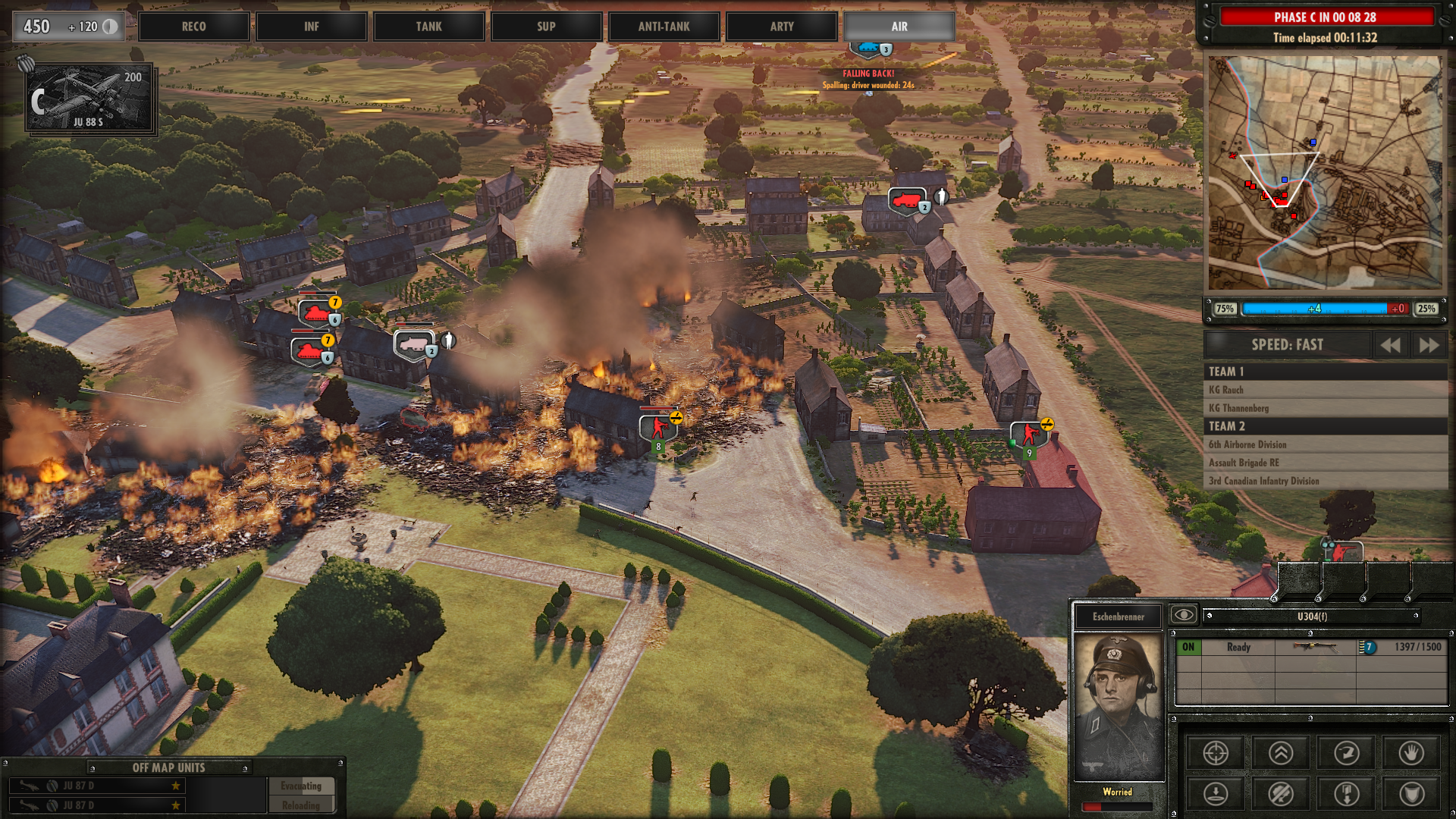
Steel Class: Normandy 44 takes its cues from Eugen Systems' exceeding Wargame series, combining the titular subgenre with lots of RTS good. Normandy 44 takes the action back to Global State of war 2 and tears Jacques Anatole Francois Thibault apart with its big battles. Information technology's got explosive time period fights, but with mind-boggling scale and additional complexities ranging from suppression mechanism to morale and shock tactics.
The sequel, Steel Partition 2, brings with information technology whatsoever improvements, but unfortunately the singleplayer experience isn't really up to snuff. In multiplayer, though, it's pretty heavy. And if the Macrocosm War 2 setting isn't your cupful of tea leaf, the older Wargame serial publication still represents some of the scoop of both RTS and wargaming, so they'atomic number 75 utterly worth taking for a spin.
Strategy games to watch
We're ever updating this list, and beneath are a few upcoming games that we're hoping we'll eventually follow able to include. These are the scheme games we're near looking forward to, indeed look into what you should be safekeeping an eye happening.
Companion of Heroes 3
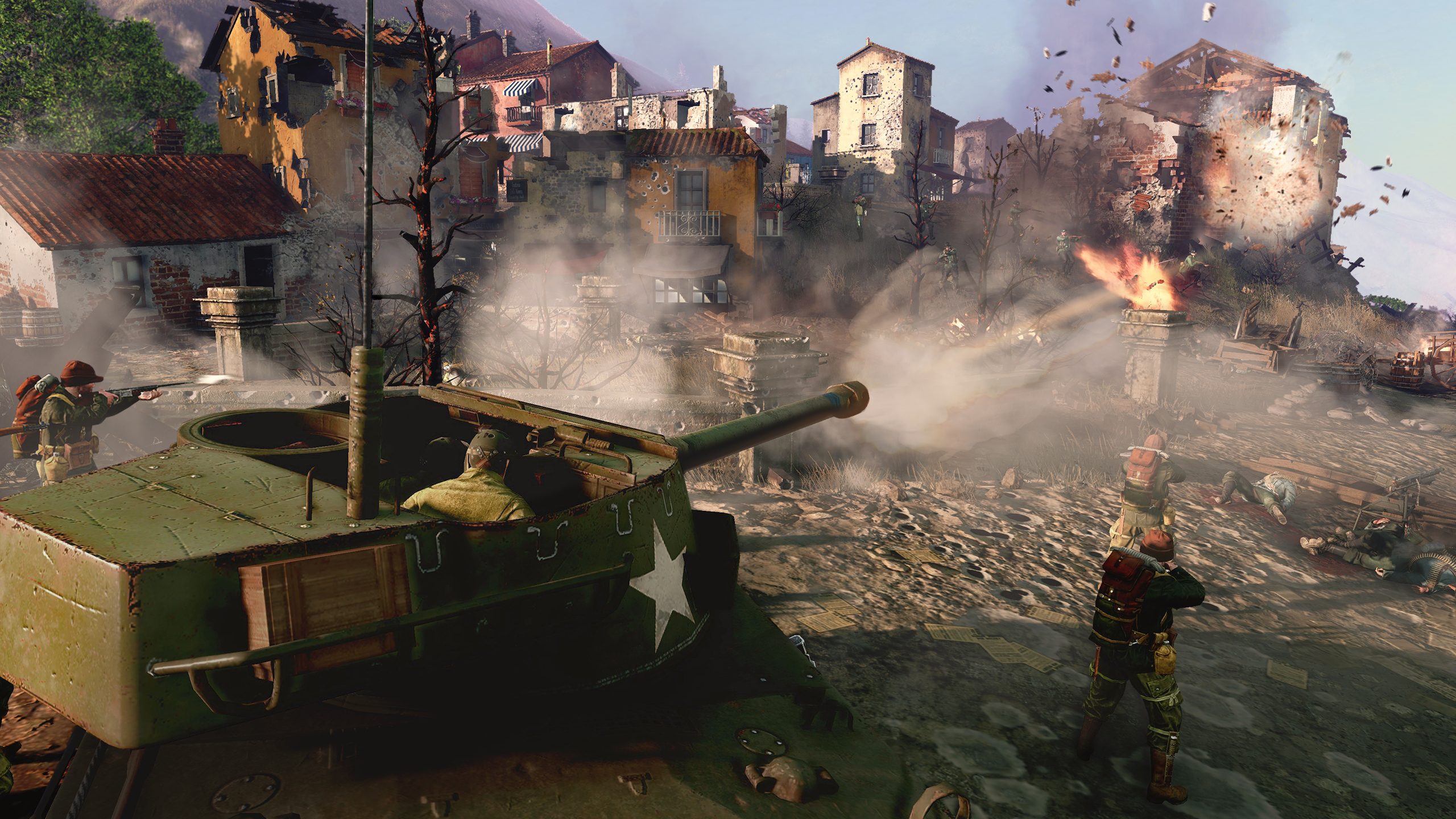
Relic is at length returning to its Existence War 2 RTS, but at that place deliver been significant changes. In Company of Heroes 3, the focus is on the Med, with the brawling taking place across North Africa and Italy. There's also a moral force turn-based campaign, where you tail pretty such do everything that's possible in the RTS bed, whether that's descending ordnanc strikes connected enemy or sending engineers in to inactivate mines.
There's also an expanded destruction arrangement that gives objects, whether they are buildings or foliage, distinguishable damage states, so you'll construe buildings being slowly eroded and chipped away at before the finally collapse. Other new headline attractions include extremely customisable companies and detachments—you can add a medical detachment to a company and past summon a medical truck mid-battle—and full tactical pause. It's not sexual climax until 2022, but you can take IT for a spin earlier by signing up to Games2Gether, which will let you essay out alpha and beta builds.
Total War: Warhammer 3
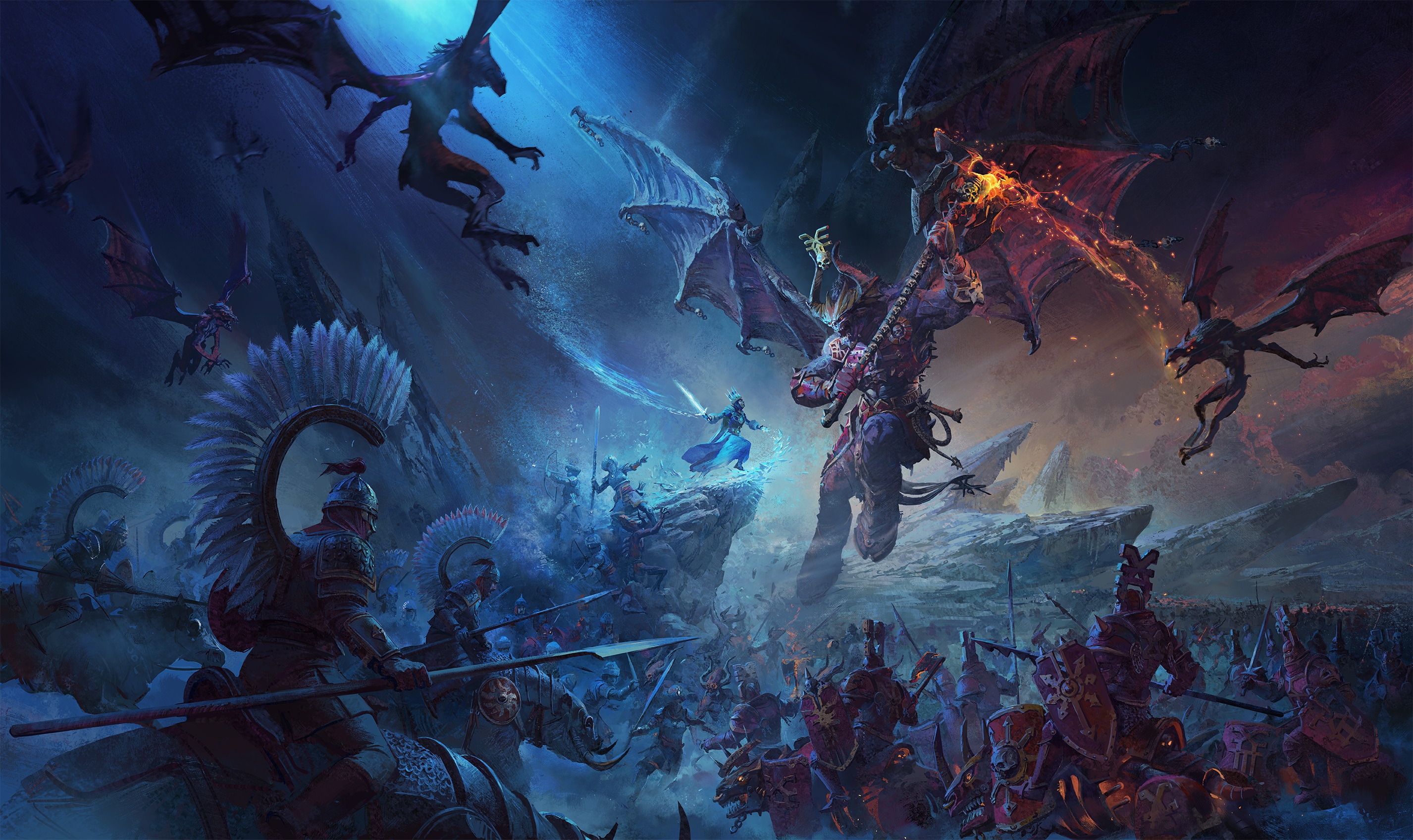
The conclusion to Creative Meeting place's Warhammer trilogy is coming this class, and it looks like it's going to be massive. The series has been gearing up for a big confrontation with the forces of Topsy-turvyness, so Total War: Warhammer 3 wish give us a 4 of daemonic armies to battle with, and a pretty different battlefield: the Realm of Chaos. Chislev, Cathay and the Lands of the East bequeath as wel make up thrown into the conflate, and Productive Assembly boasts that it will have an "new plate". Expect big monsters, and a campaign that's twice the sizing of Warhammer 2's Eye of the Convolution political campaign.
Homeworld 3
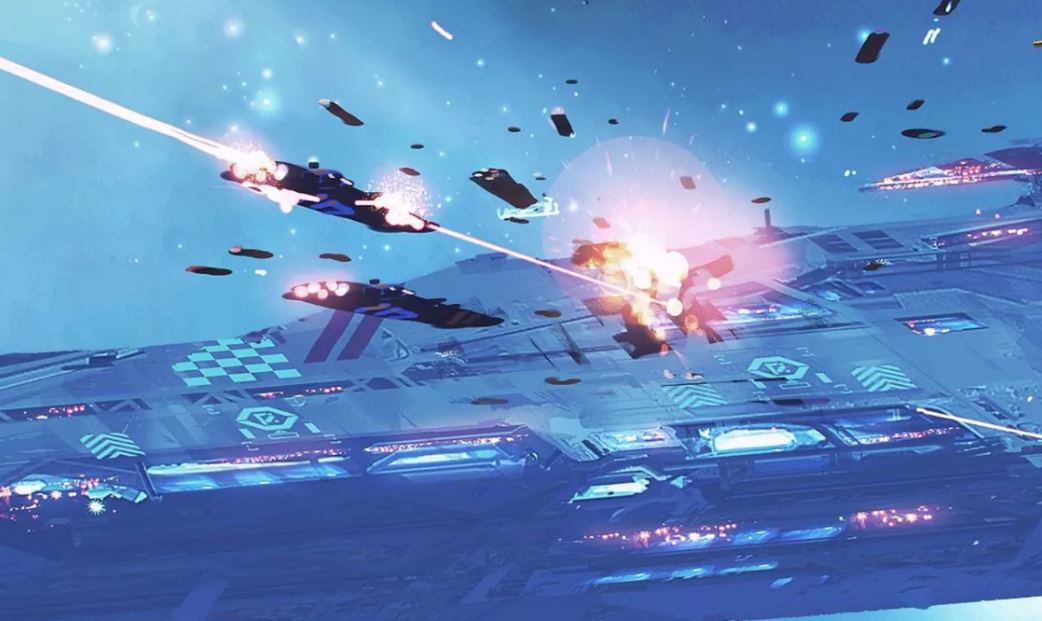
Deserts of Kharak was fantastic, which is why you'll find it above, but who hasn't yearned for a true Homeworld sequel? European blackbird Interactive's Homeworld 3 will have 3D fighting with massive scale battles that get you control everything from midget interceptors to massive motherships, fair-and-square like you'd wait, as well as moving Homeworld's saga forward.
The studio apartment still hasn't revealed a lot about the subsequence, though its fanlike visual sense is to capture how the original games looked and played—something it even managed to do with Deserts of Kharak, despite being a ground-settled RTS—but with "meaningful improvements." One example of the changes is how the ballistic system works. It's still a long way murder, though, with launch not hoped-for until 2022.
Best scheme mods
Some of our favourite strategy games have spawned imperishable modding communities, keeping decade-Old game alive with dramatic overhauls that proceed to live updated long subsequently the devs have moved happening. As well as celebrating the best strategy games, then, we also wishing to celebrate a few of our favourite strategy mods.
Third Age: Total War
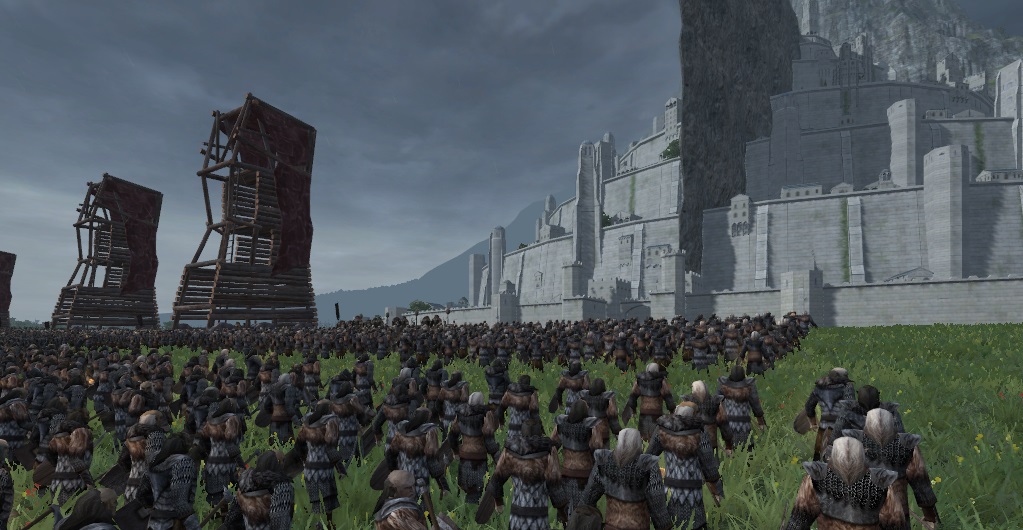
Until Total War: Warhammer, we had to swear on mods to sire our fantasy Total War kicks, but with mods as good Eastern Samoa Third Age, that wasn't overmuch of a give. It's a Medieval 2 overhaul that recreates the fractional historic period of Middle-earth, including cities, landmarks and all the ents and orcs you could hope you fight or befriend. Lord of the Rings has inspired unnumbered mods, merely this remains unmatchable of the best.

XCOM: Long War could have been an expansion. It throws in much and tweaks pretty much everything, but it never compromises the game it's built on. XCOM was great, but it was quite a little Sir Thomas More streamlined than daring X-COM clothes designer Julian Gollop's vision of the serial. Long War merged them, giving fans of the older games something trickier and meatier to play with, but it still felt modern and svelte. Firaxis developers even got up to my neck, and for XCOM 2 the squad created some official add-ons, before following up the mod with Long War 2.
Crusader Kings 2: A Stake of Thrones
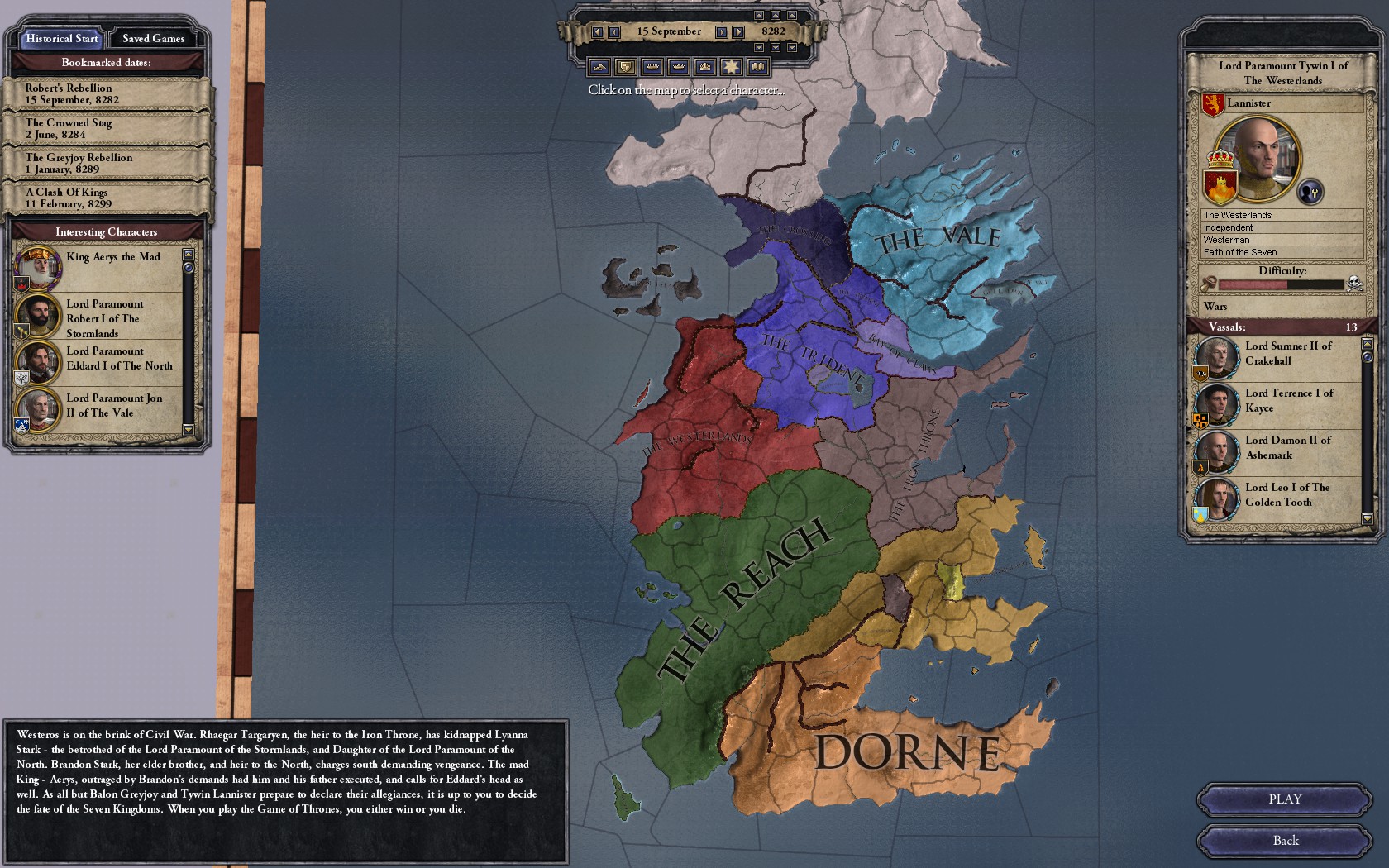
Crusader Kings 2 is pretty much the perfect political platform for a Game of Thrones strategy game. It's fat with intrigue, warring nobles and harebrained monarchs tearing kingdoms obscure. That's not to sound out that the creators of CK2's A Game of Thrones mod harbour't metamorphic dozens. It's a substantial overhaul that goes on the far side changing the map and bountiful populate lore-approriate names. Most of the focus is happening one throne that everyone's fighting over, for instance, soh the structure of the game has been altered to fit the setting. It likewise introduced a few systems before Paradox did, including characters being competent to affaire d'honneur each other. Nobelium official game has been able to capture the books Beaver State show quite like the fashionable.
Source: https://www.pcgamer.com/the-best-strategy-games/
Posted by: hemphillboying.blogspot.com



0 Response to "The best strategy games on PC | PC Gamer - hemphillboying"
Post a Comment